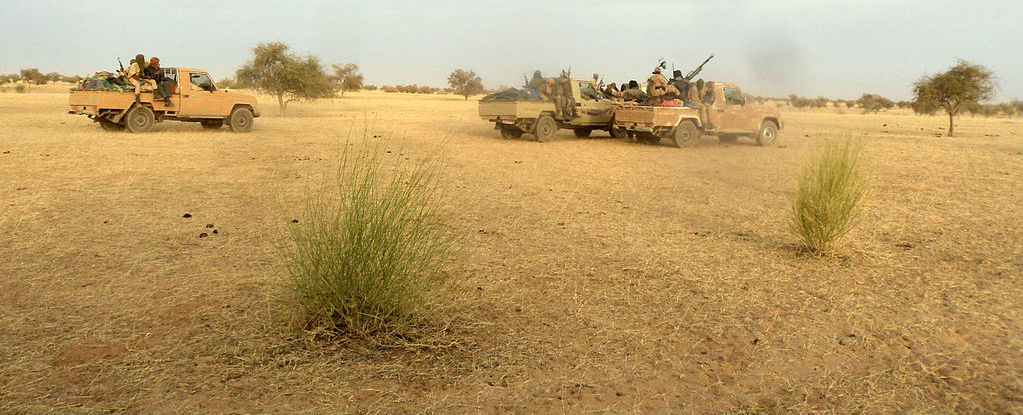
Islamist fighters in Mali. (Photo: Magharebia)
The Sahel has seen the most rapid growth in violent extremist activity of any region in Africa over the past two years. The region is also a nexus of criminal networks and illicit trafficking and has experienced a rise in farmer-herder violence. The Sahel, moreover, has the fastest population growth rate on the continent, despite being among the poorest and facing some of the most fragile environmental conditions. Consequently, migrants from the Sahel constitute a significant share of those trying to cross the Mediterranean into Europe. All the while, emerging democratic institutions are trying to gain traction in the region. Here is a selection of Africa Center work on the region.
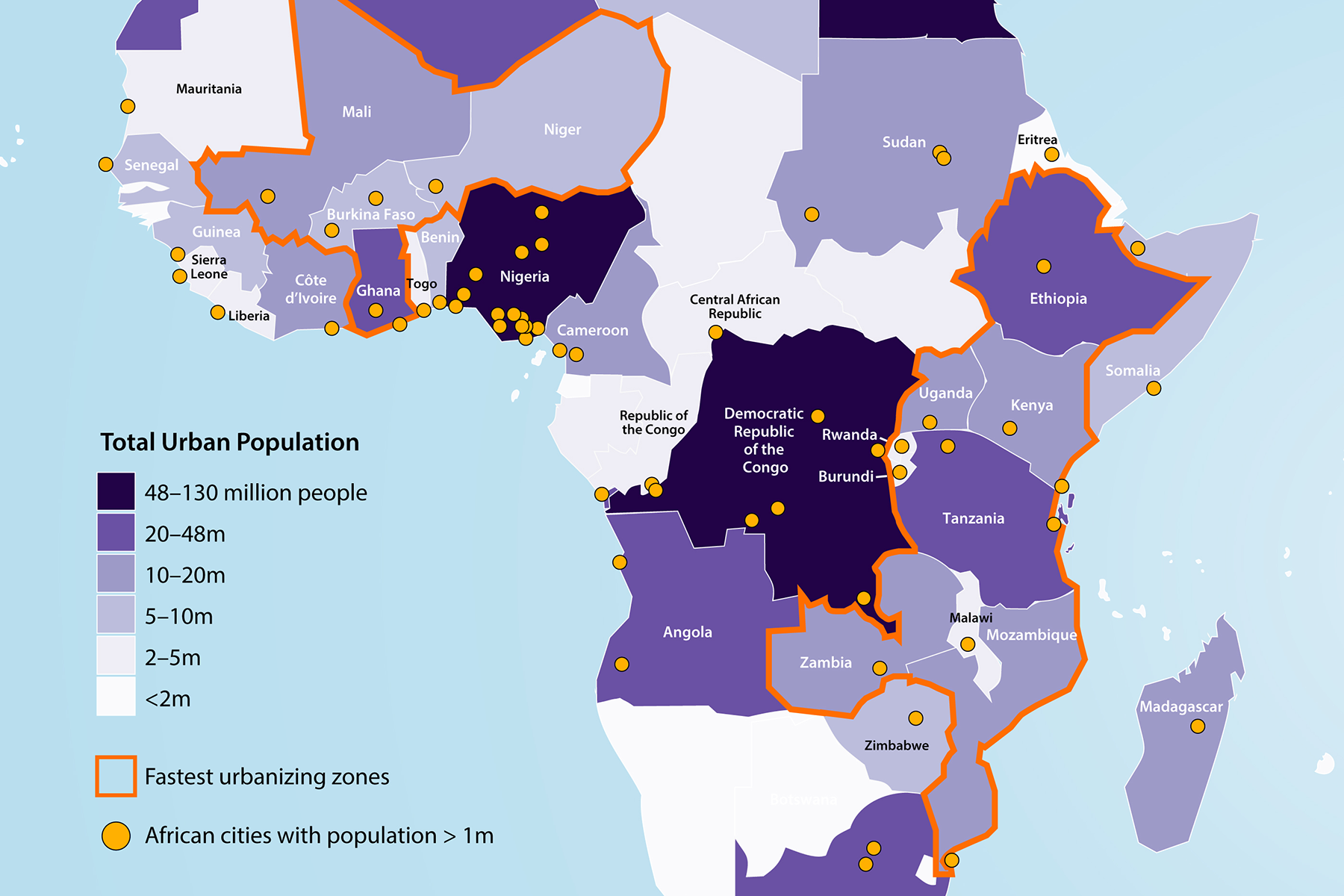
Infographic
Africa’s Unprecedented Urbanization is Shifting the Security Landscape
As Africa urbanizes at a record pace, national security policies will need to adjust to the changing geographic locus and types of threats in urban versus rural settings.
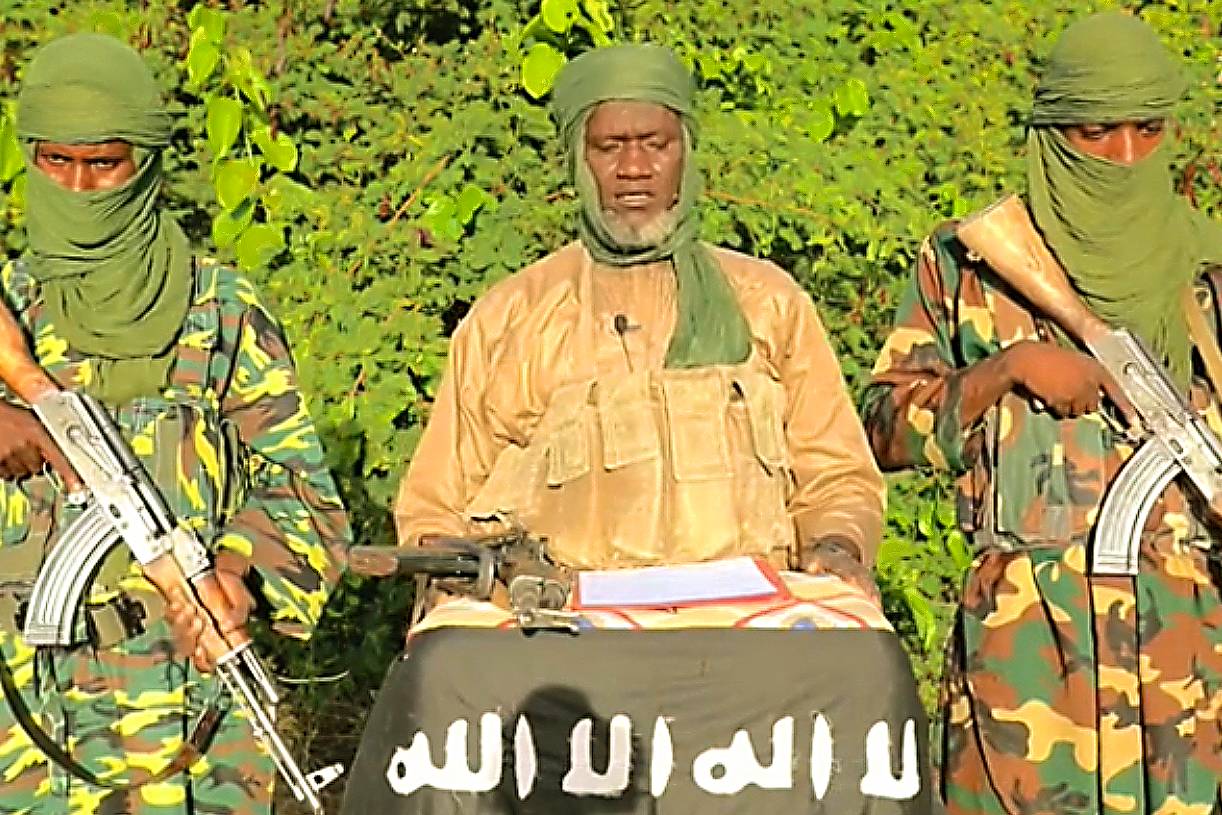
Spotlight
The Shifting Front of Militant Islamist Violence in the Sahel
Militant Islamist violence in the Sahel continues to shift southward and westward, putting ever more pressure on population centers in Mali, Burkina Faso, and Niger—as well as on their coastal West African neighbors.
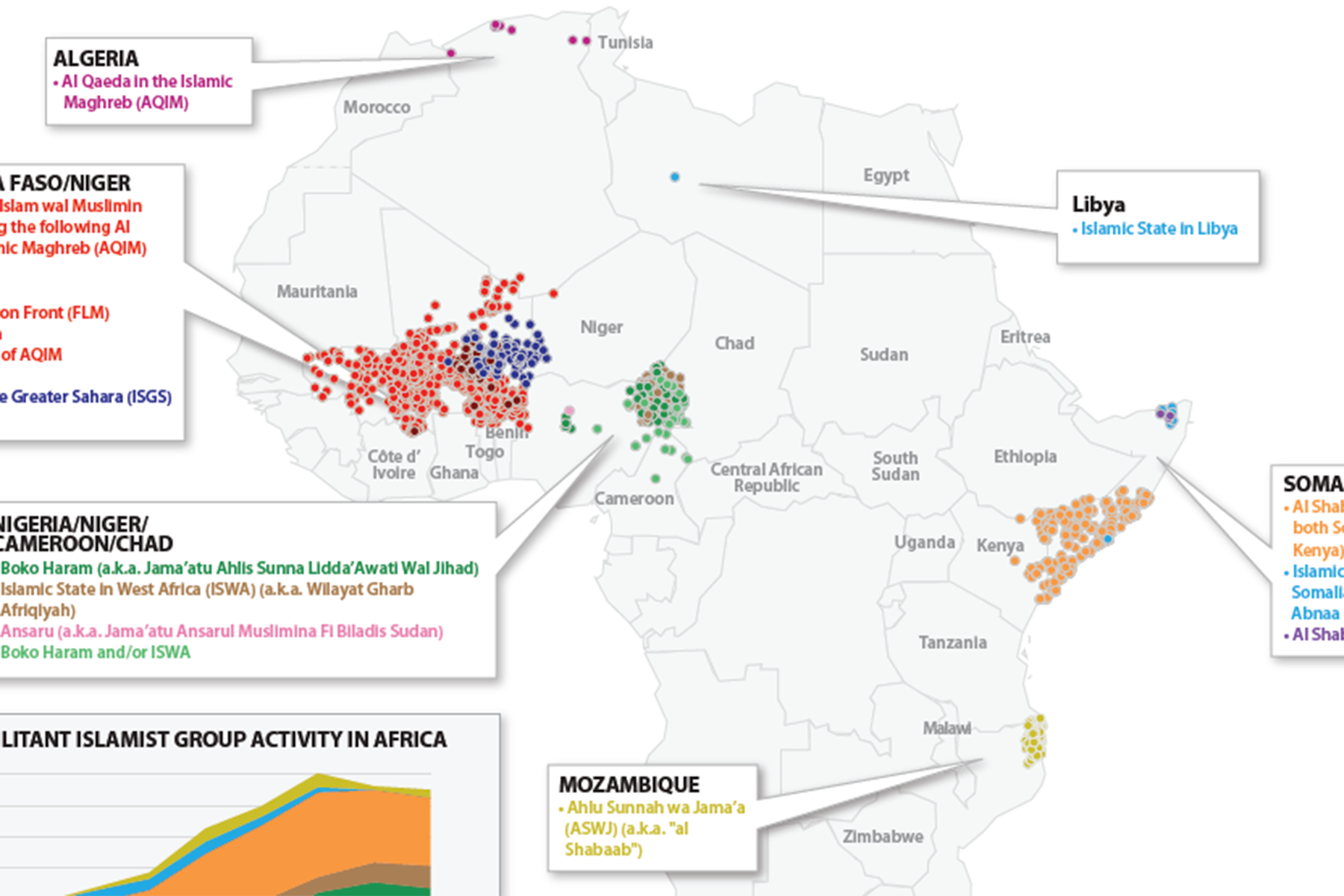
Infographic
Militant Islamist Groups in Africa Sustain High Pace of Lethality
Fatalities and violent events linked to militant Islamist groups in Africa sustained near record pace, with the Sahel and Somalia accounting for 79 percent of related deaths.
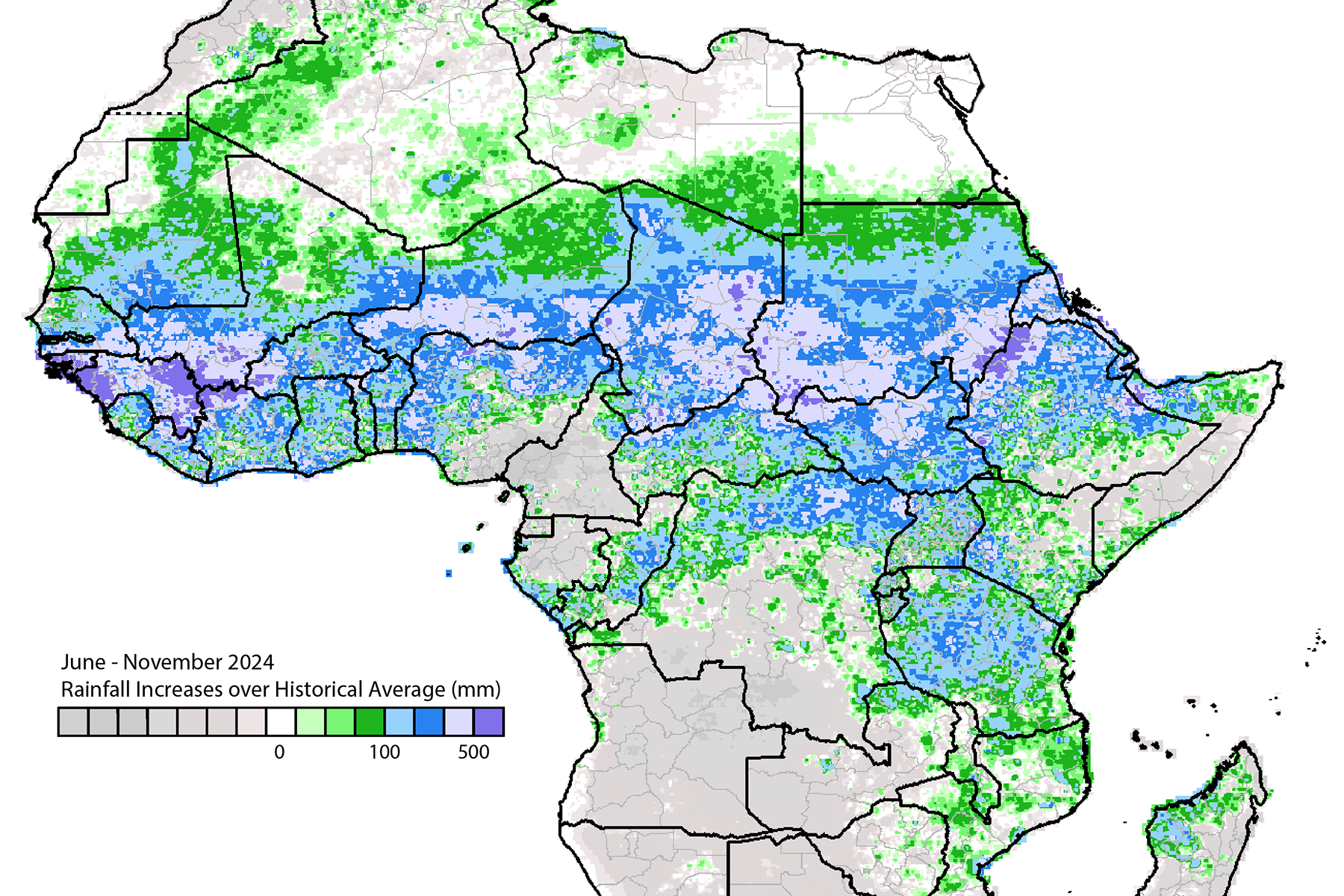
Infographic
Record Levels of Flooding in Africa Compounds Stress on Fragile Countries
Extensive flooding in more than two dozen African countries due to higher-than-average rainfall has resulted in thousands of fatalities, millions of people displaced, and devastated infrastructure.
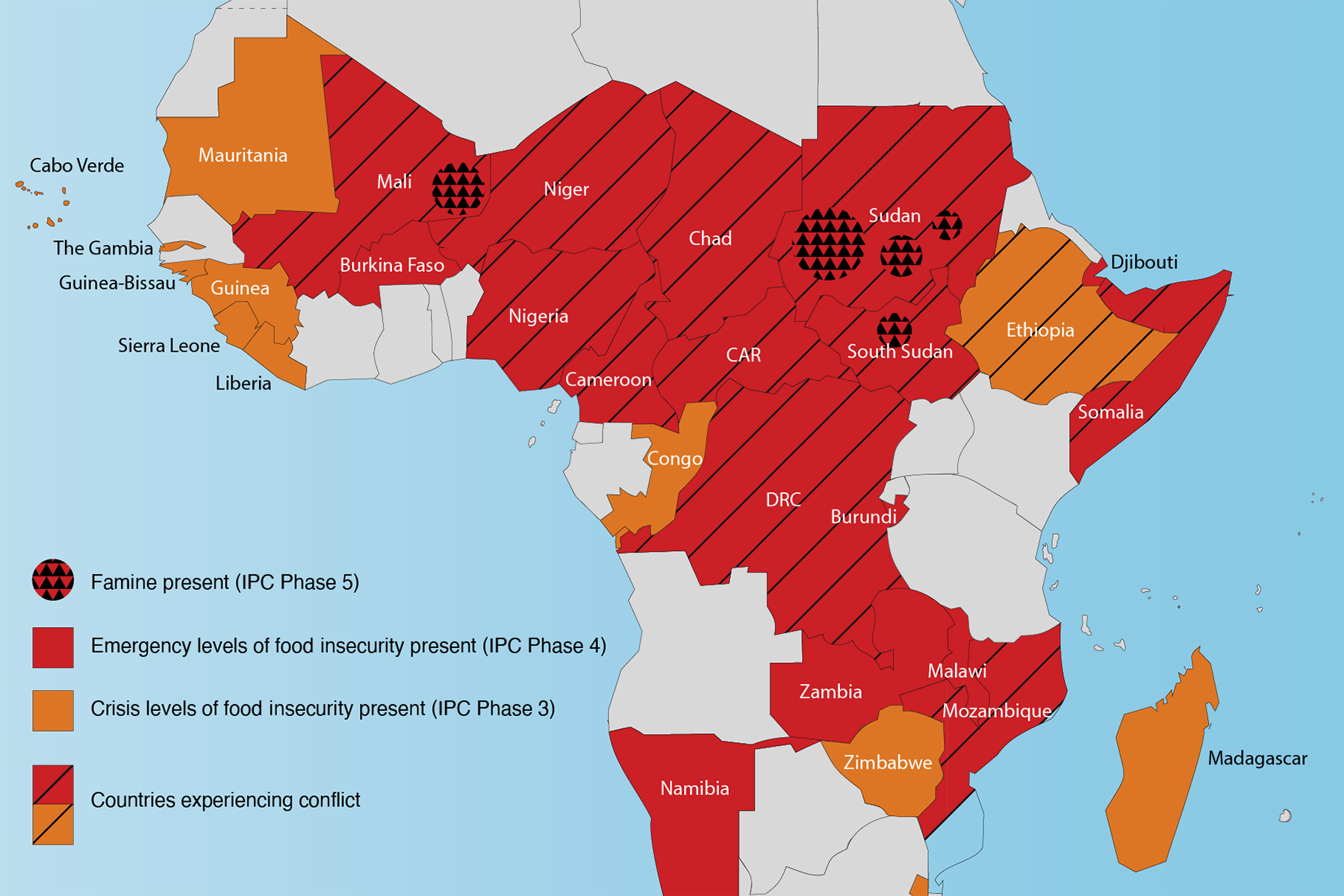
Infographic
Famine Takes Grip in Africa’s Prolonged Conflict Zones
Eighty percent of the record 163 million Africans facing acute food insecurity are in conflict-affected countries, including potentially 840,000 people confronting famine in Sudan, South Sudan, and Mali.

Infographic
Militant Islamist Groups Advancing in Mali
The recent militant Islamist attack in Bamako is part of a broader push by violent extremist groups into southern Mali and reflective of the deteriorating security in Mali under military rule.

Infographic
Conflicts Causing Record Level of Forced Displacement in Africa
The number of African refugees, internally displaced persons, and asylum seekers grew by 14 percent over the past year—to more than 45 million people.
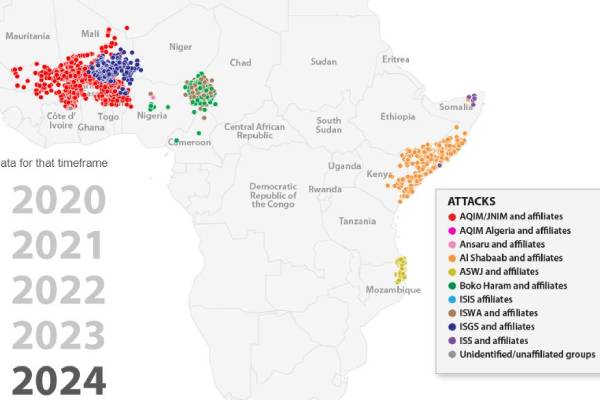
Infographic
Africa’s Constantly Evolving Militant Islamist Threat
Fatalities linked to militant Islamist violence in Africa have surged by nearly 60 percent since 2021, though this is marked by widely varying regional threat trajectories, actors, and objectives.
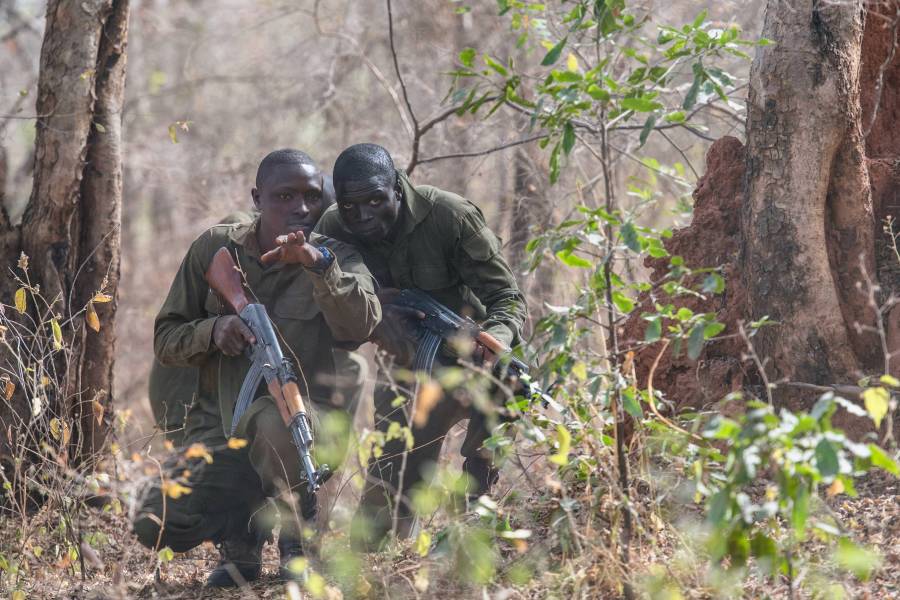
Publication
Recalibrating Coastal West Africa’s Response to Violent Extremism
Coastal West African countries can strengthen resiliency to the threat of violent extremism by enhancing a multilayered response addressing local, national, and regional priorities.
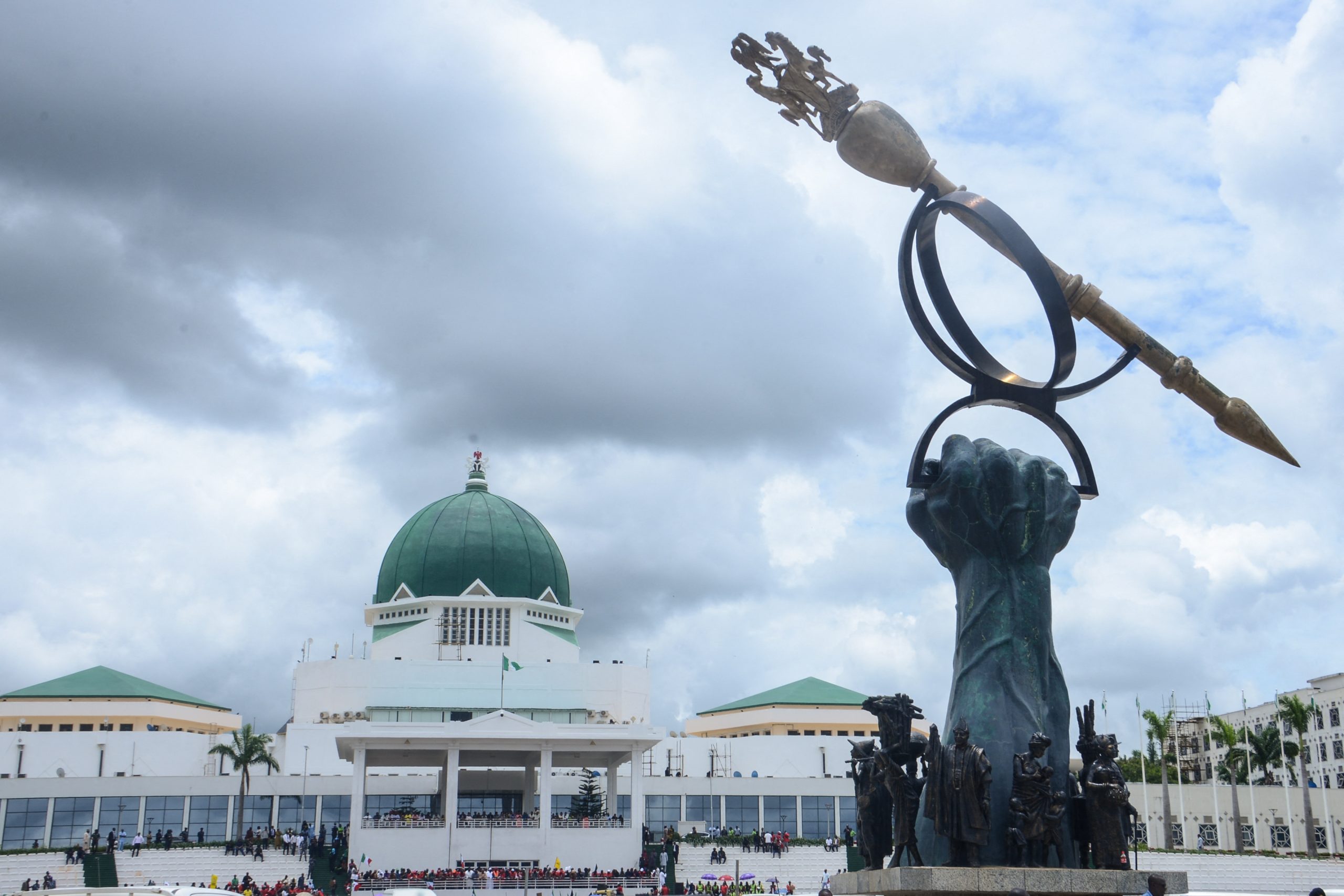
Spotlight
How Africa’s Legislatures Can Improve Security
Legislatures play an integral role in advancing national security by ensuring priorities align with citizen interests, budgets are allocated to meet priorities, and adequate oversight exists for the effective use of these resources.
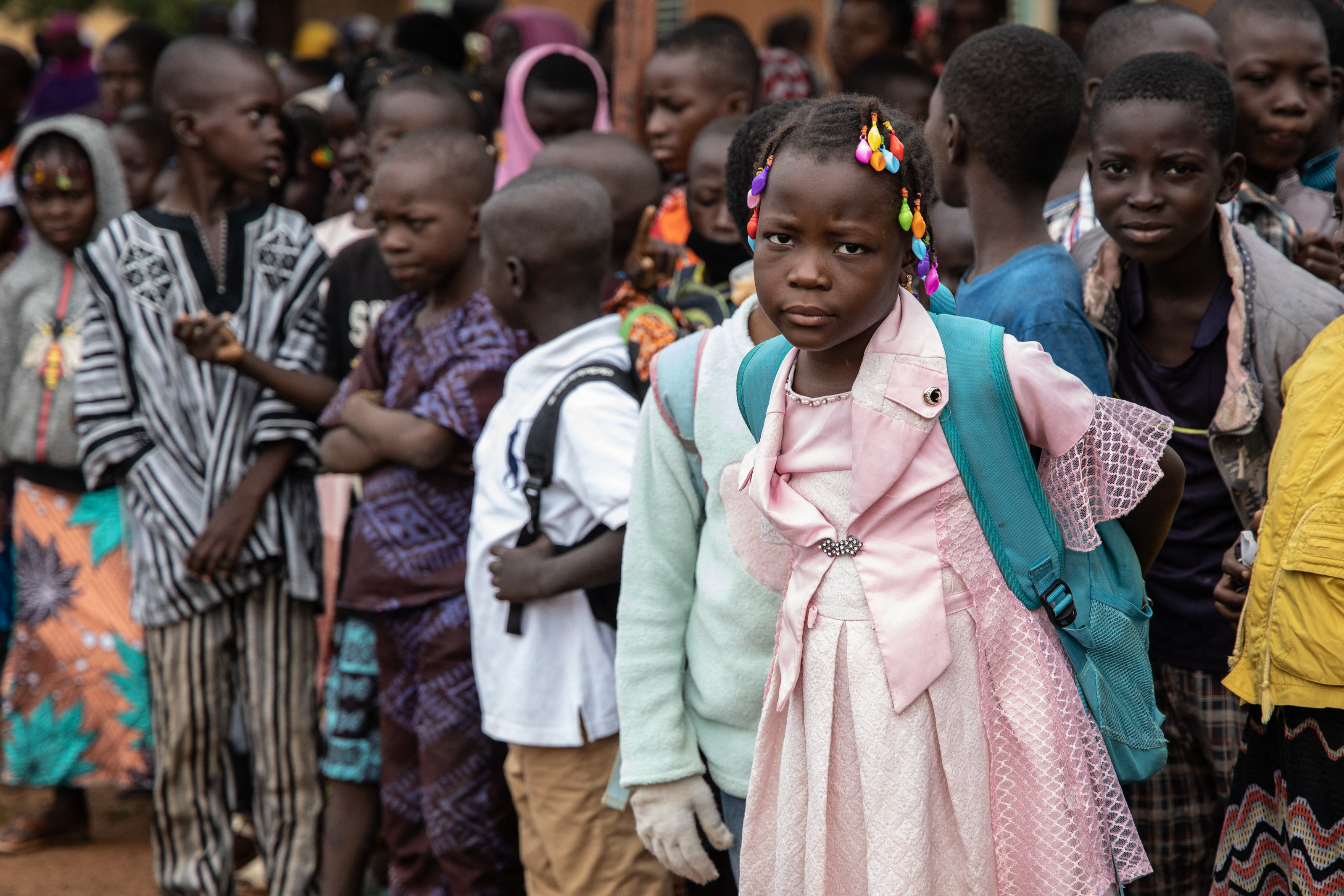
Spotlight
Culture, Democracy, and the Fight against Violent Extremism
Strengthening democratic institutions and amplifying traditional African values to promote social cohesion and consensus goes hand in hand with the fight against violent extremism.
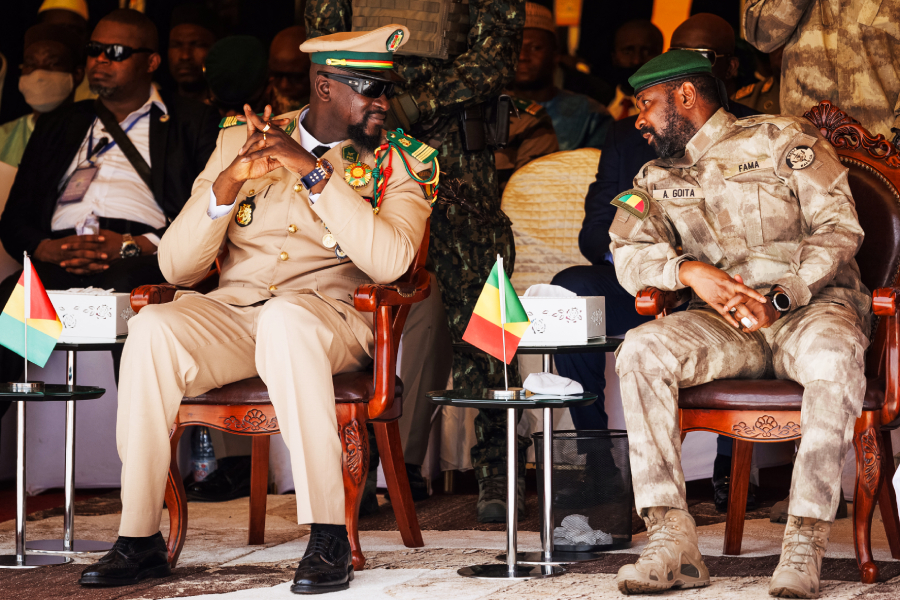
Spotlight
Accommodating Africa’s Juntas Amplifies Insecurity
In addition to undermining democracy, accommodating Africa’s military coups will exacerbate security, economic, and humanitarian concerns.
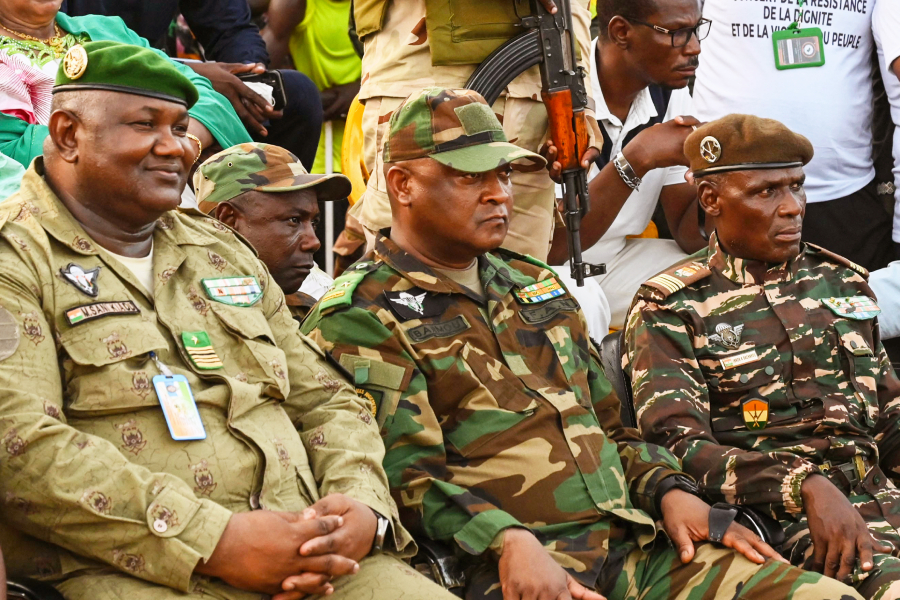
Infographic
Niger Coup Reversing Hard-Earned Gains
After noteworthy gains in the previous decade under democratically elected governments, the derailing of Niger’s constitutional order by the military coup in July 2023 has resulted in a deterioration in security, economic wellbeing, and agency for Nigerien citizens.
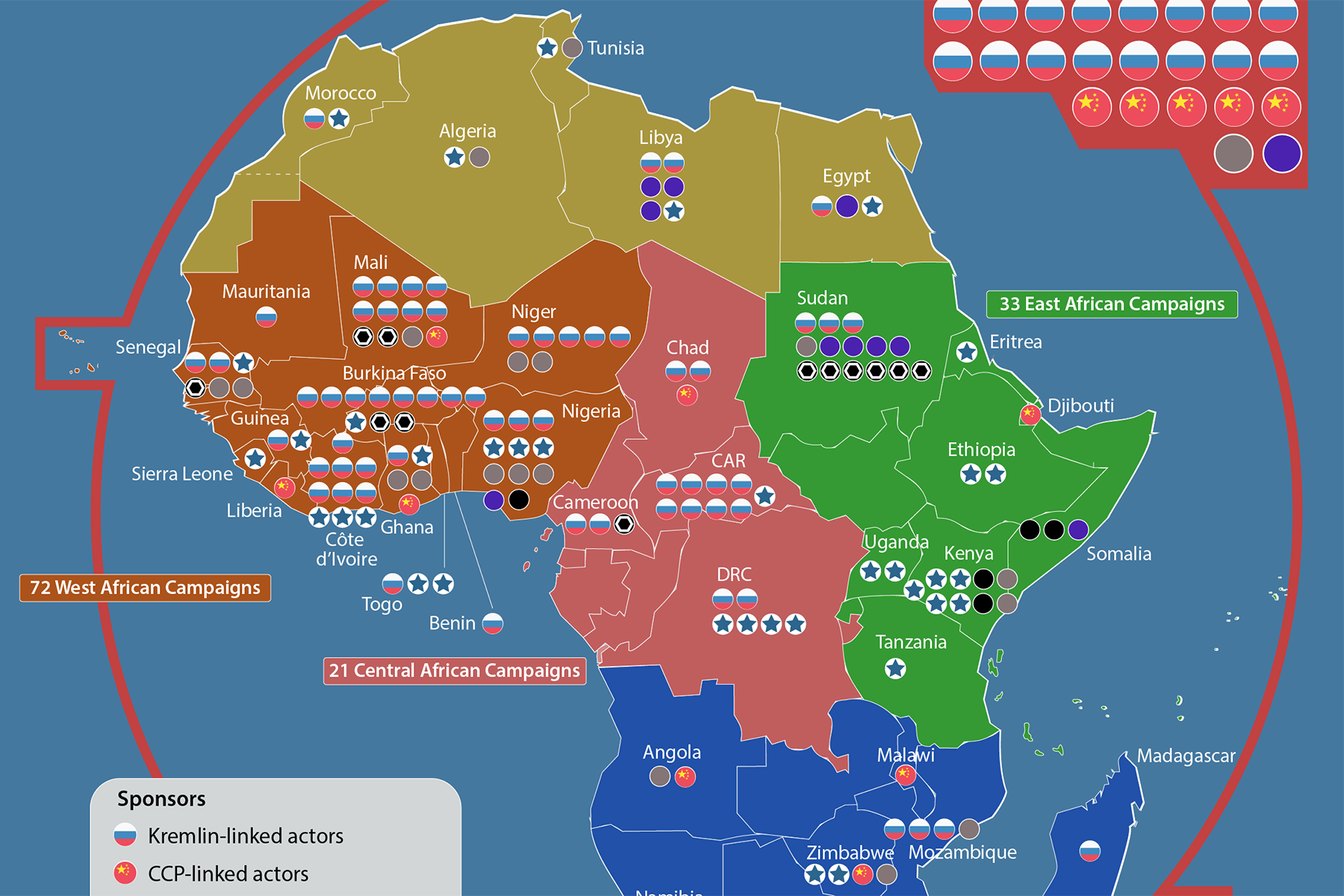
Infographic
Mapping a Surge of Disinformation in Africa
Disinformation campaigns seeking to manipulate African information systems have surged nearly fourfold since 2022, triggering destabilizing and antidemocratic consequences.
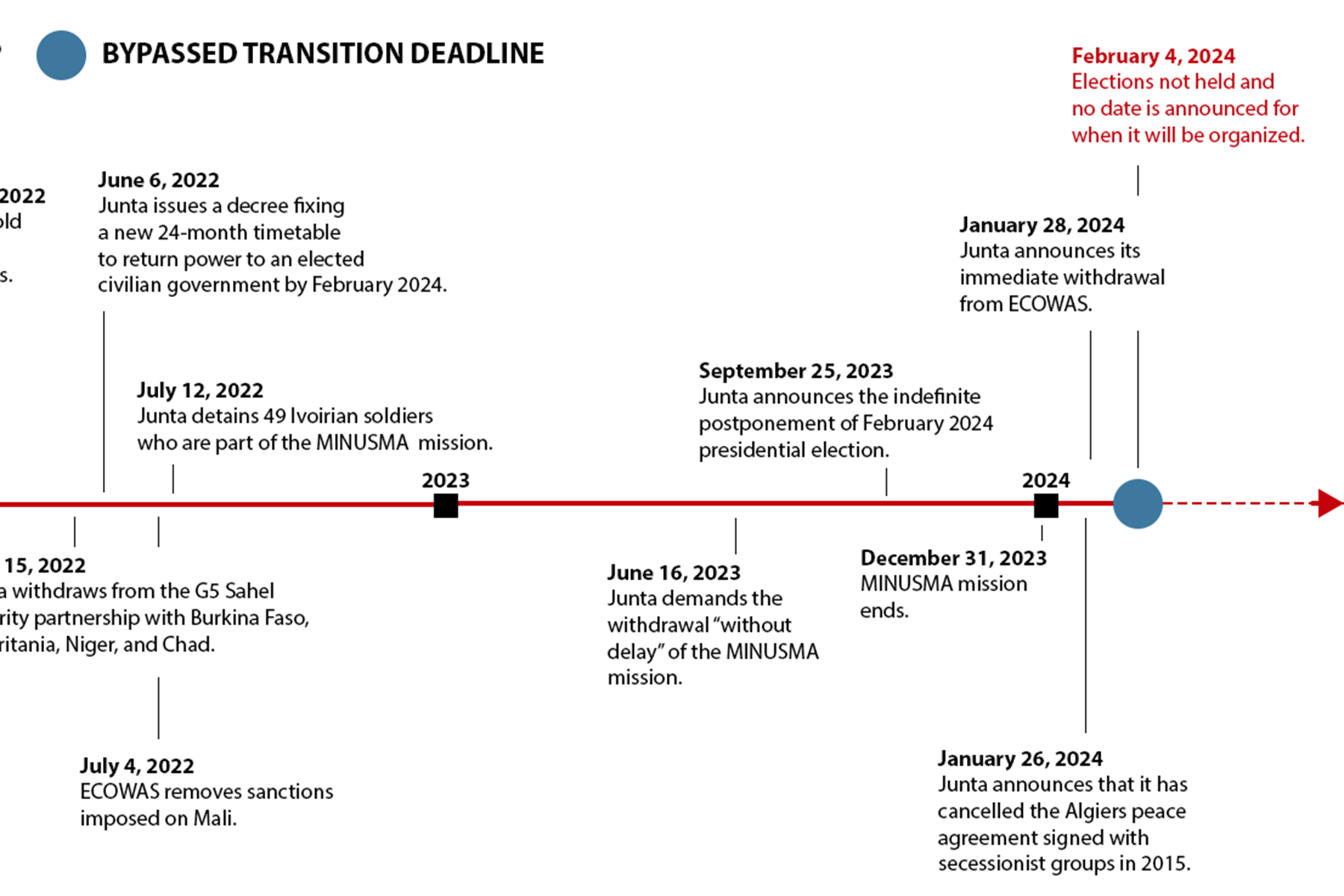
Infographic
Assessing Mali’s Non-Transition
The Malian military junta has repeatedly refused to honor its commitments to transition back to a democratic civilian government, resulting in mounting security and economic costs to citizens.
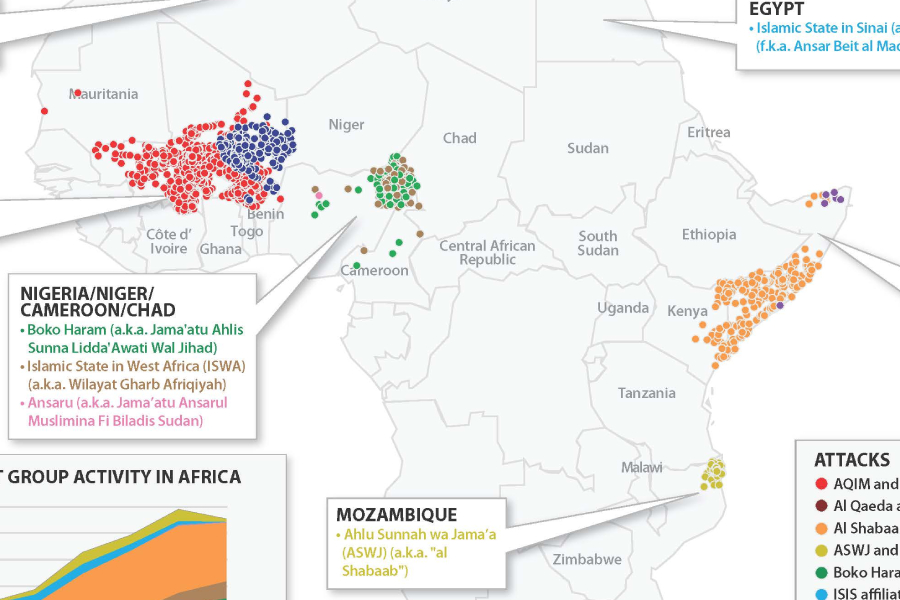
Infographic
Deaths Linked to Militant Islamist Violence in Africa Continue to Spiral
Fatalities linked to militant Islamist violence jumped by 20 percent in 2023, claiming more than 23,000 lives—a new record. Over 80 percent of these deaths were in the Sahel and Somalia.
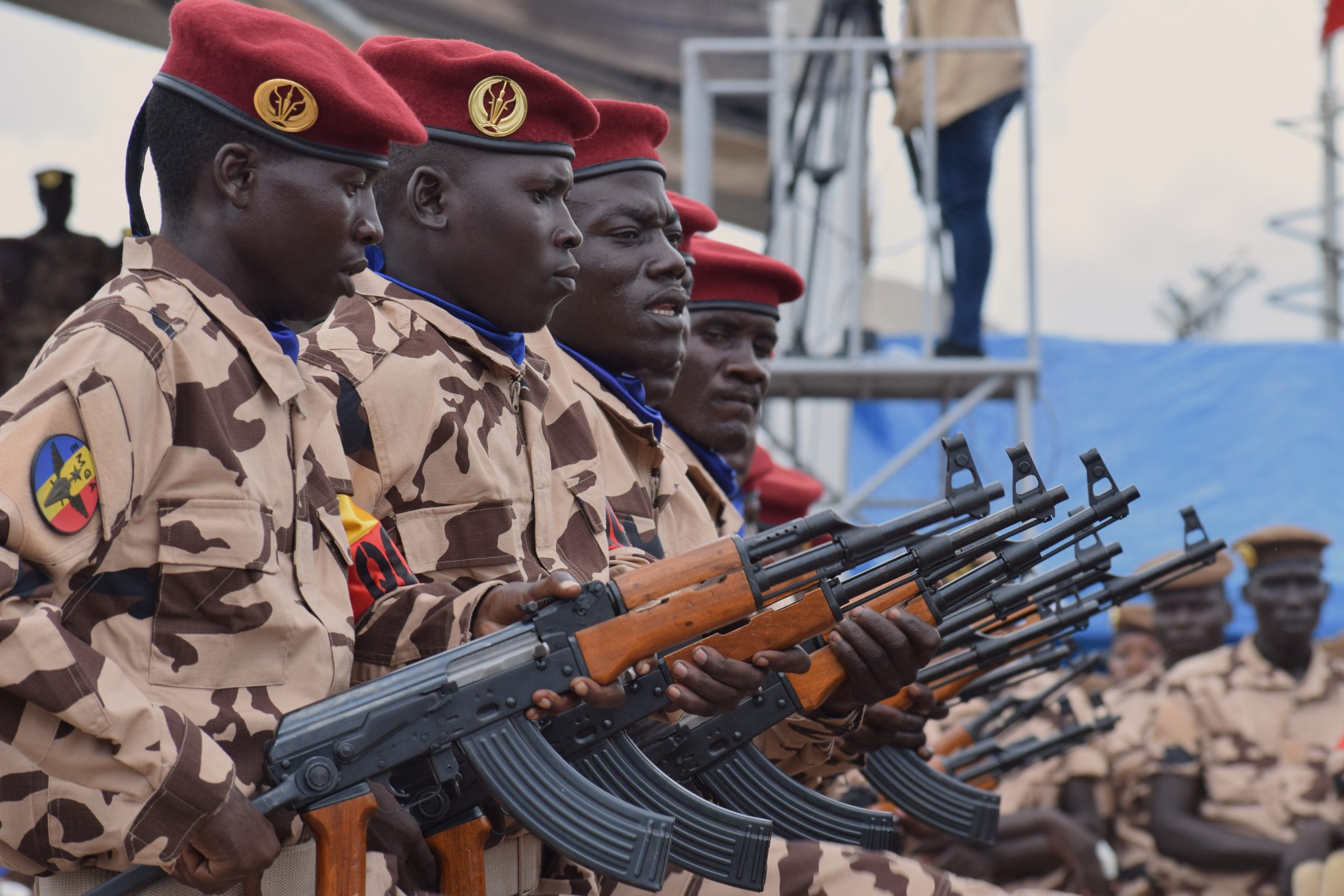
Spotlight
Chad’s Constitutional Referendum Promises a Transition without Change—or Stability
The highly controlled constitutional referendum organized by Mahamat Déby’s military junta appears intended to provide a degree of credibility to the military’s plans to hold power indefinitely.
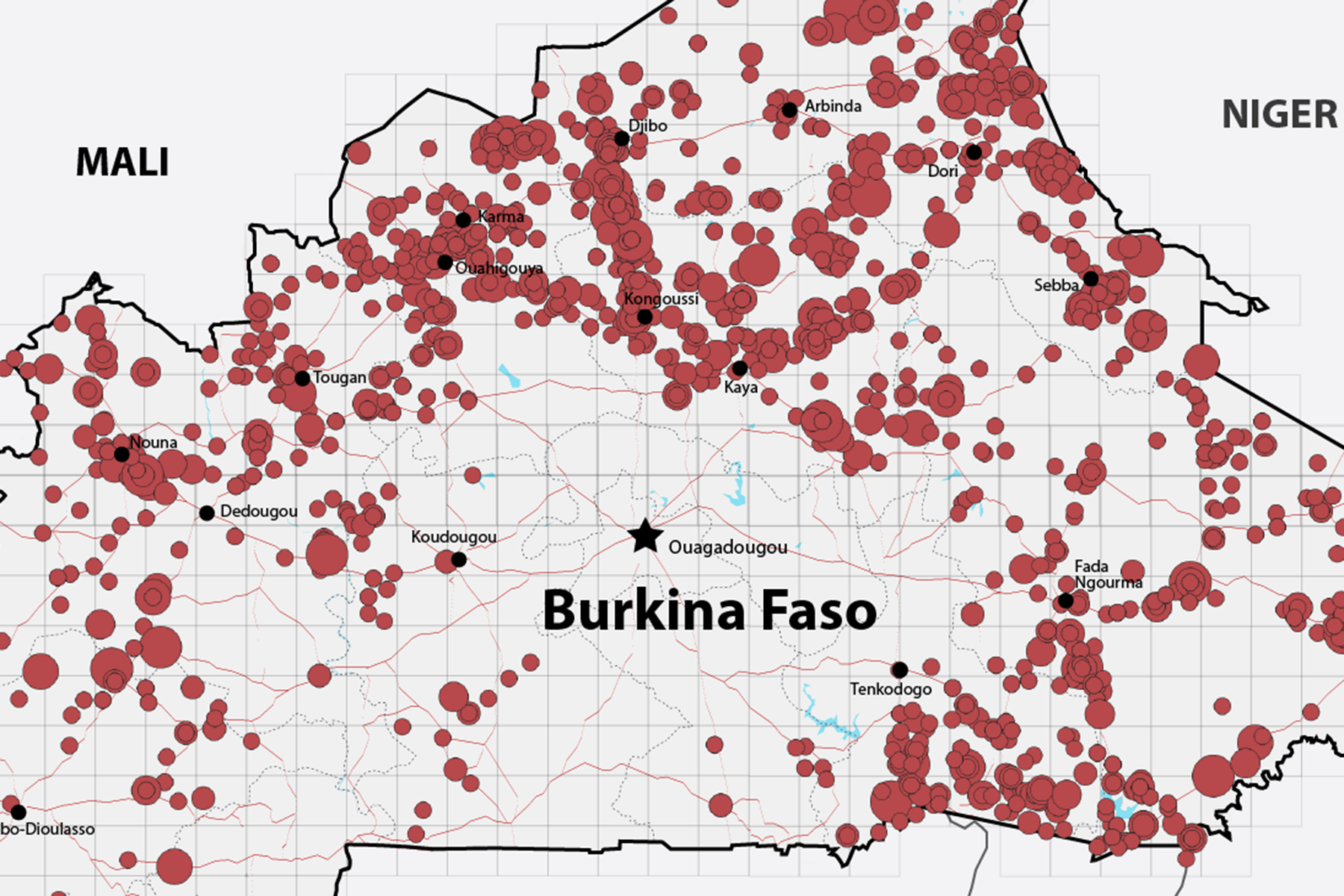
Infographic
Burkina Faso Crisis Continues to Spiral
Following two military coups d’état in 2022, militant Islamist groups in Burkina Faso have moved to encircle Ouagadougou leaving a trail of unprecedented violence in their wake.
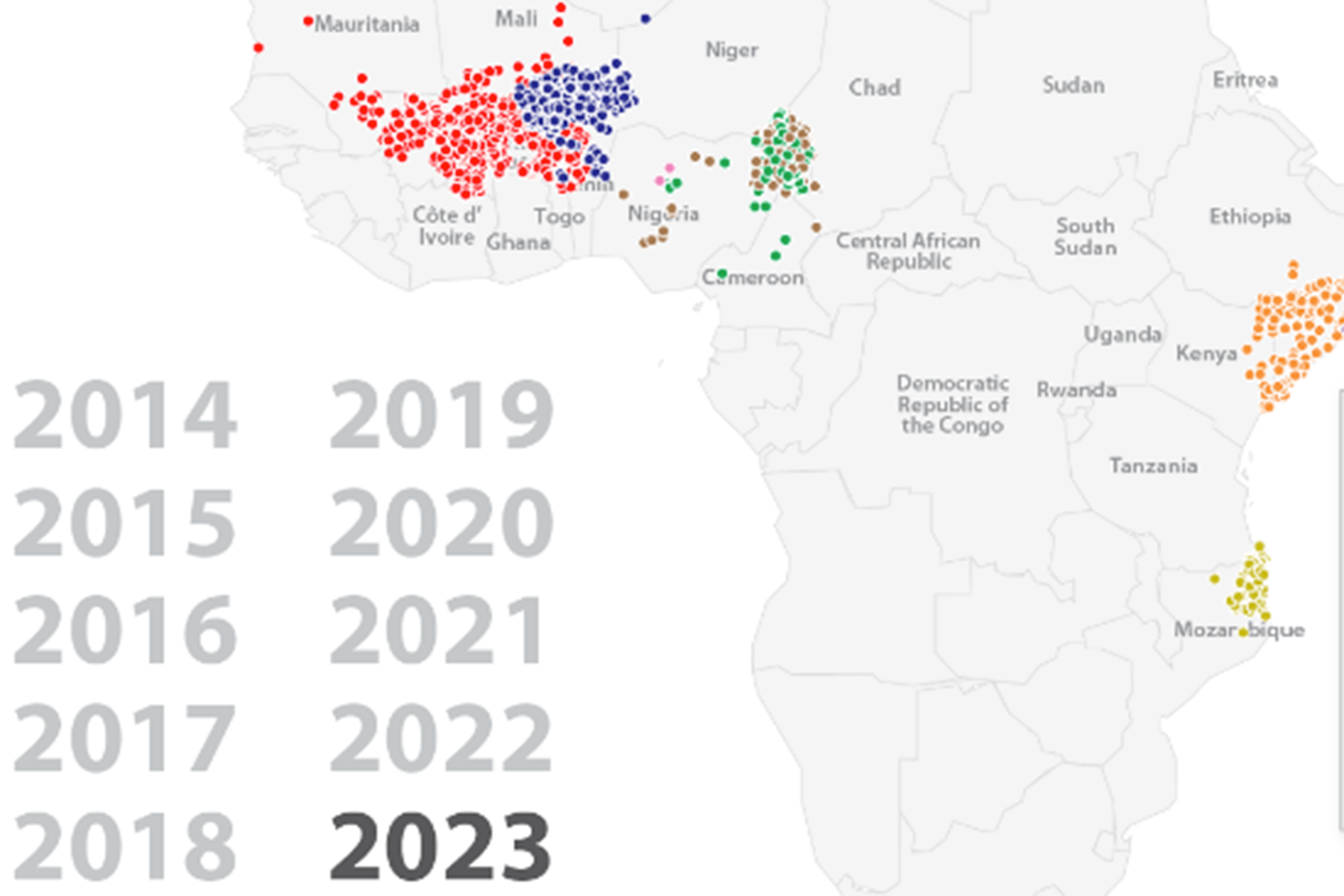
Infographic
African Militant Islamist Group-Linked Fatalities at All-Time High
A 50-percent spike in fatalities tied to militant Islamist groups in the Sahel and Somalia over the past year has eclipsed the previous high in 2015 when Boko Haram was at its most lethal phase.
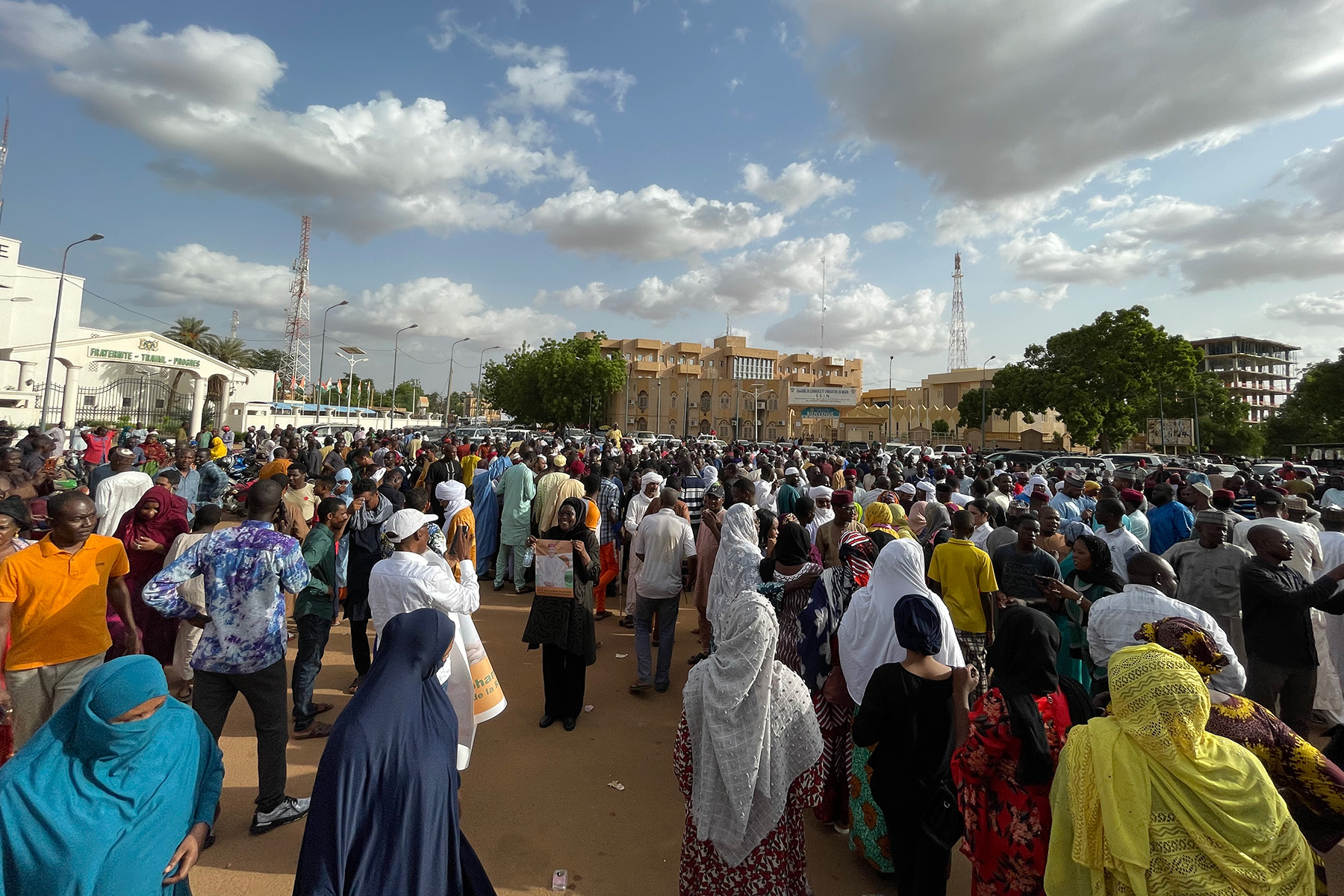
Spotlight
Attempted Coup in Niger: Backgrounder
The attempted military coup in Niger threatens to undermine the relative progress the country has made under its civilian democratic leaders and amplifies Niger’s risks for insecurity, economic crises, and political instability.
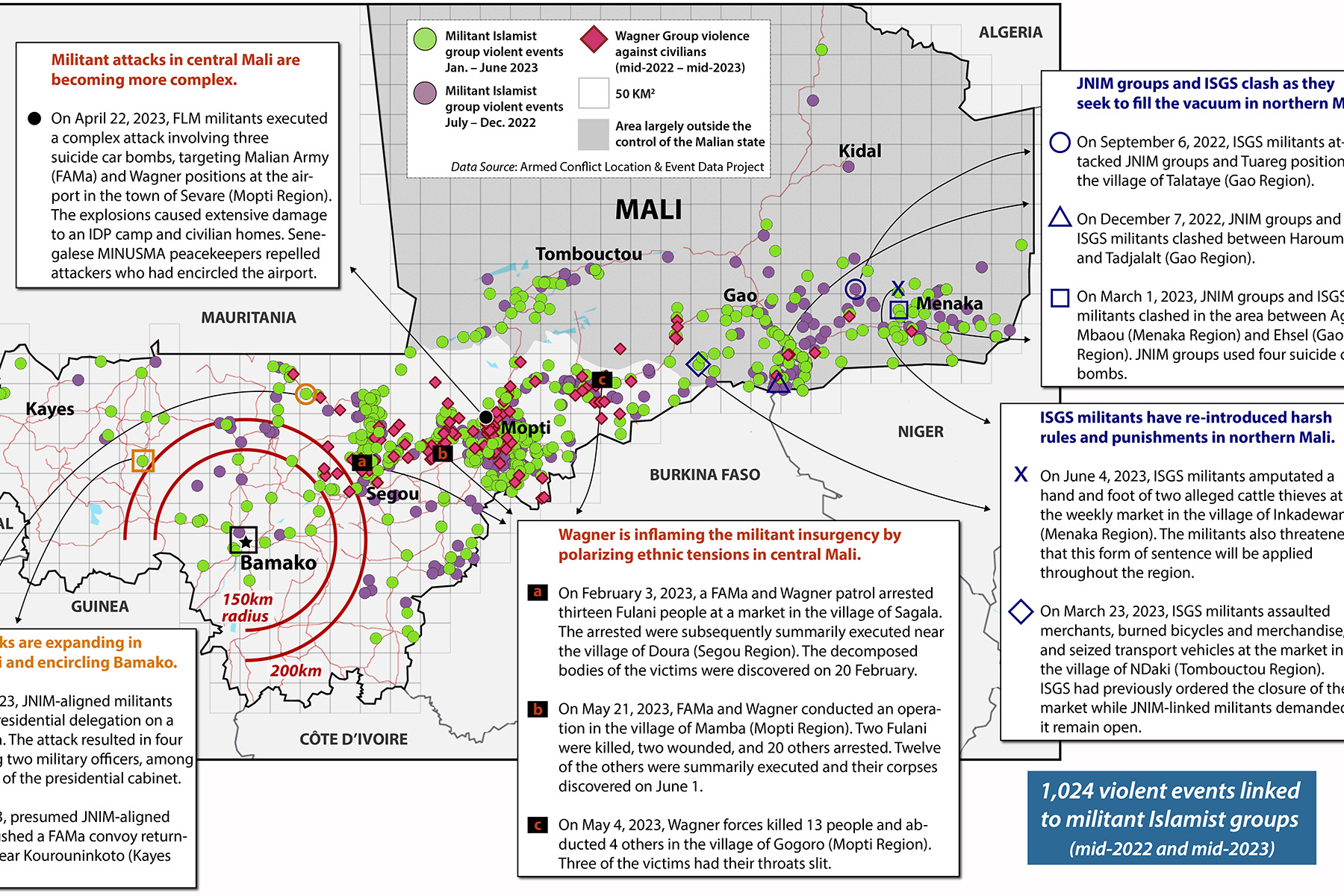
Infographic
Mali Catastrophe Accelerating under Junta Rule
The threat of militant Islamist groups is spreading to all parts of Mali as the military junta stakes its claim to stay in power indefinitely.
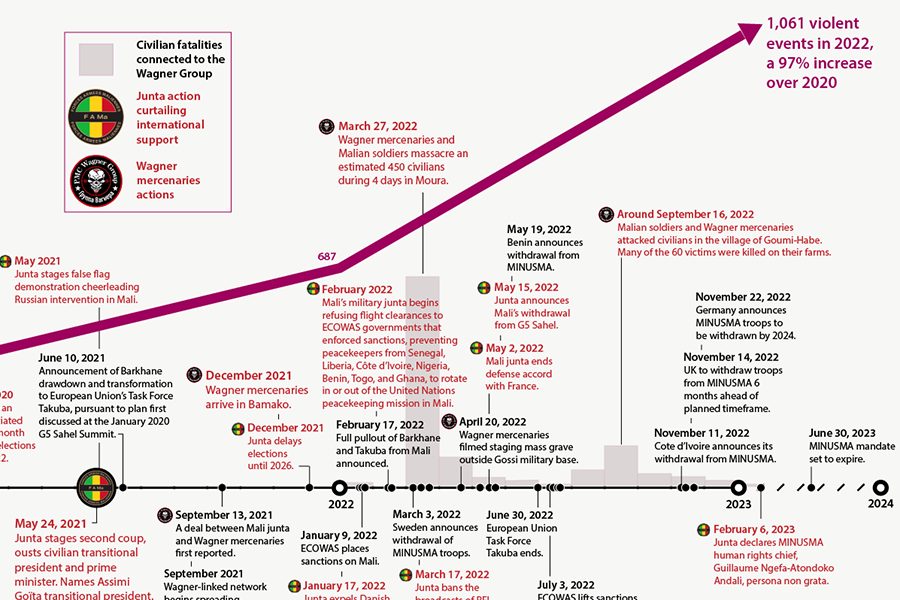
Infographic
Malian Military Junta Scuttles Security Partnerships while Militant Violence Surges
The military junta in Mali has alienated regional and international security partners amid escalating violence by militant Islamist groups, leading to a spike in civilian fatalities.
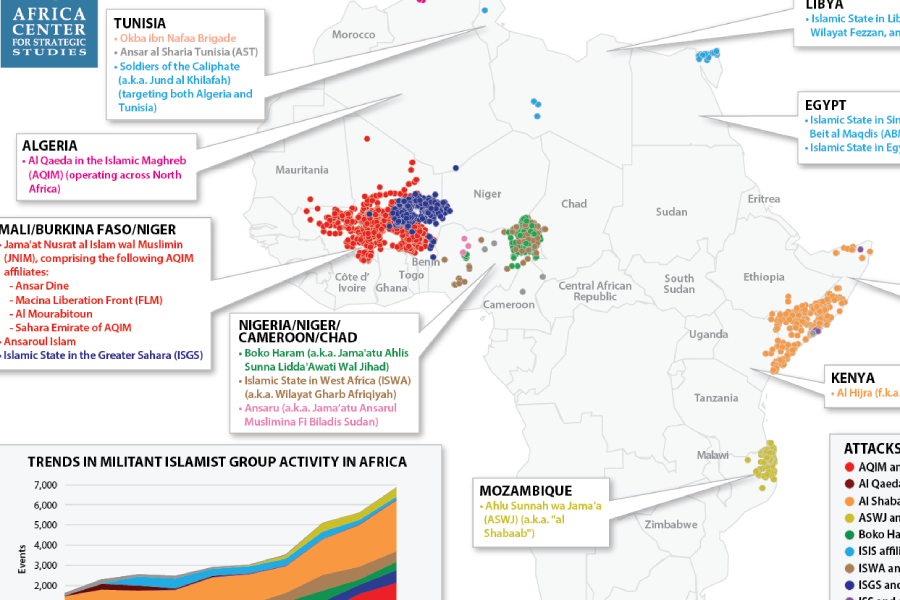
Infographic
Fatalities from Militant Islamist Violence in Africa Surge by Nearly 50 Percent
Continuing a decade-long upward trend, violent events linked to militant Islamist groups in Africa increased by 22 percent while fatalities surged by 48 percent over the past year.
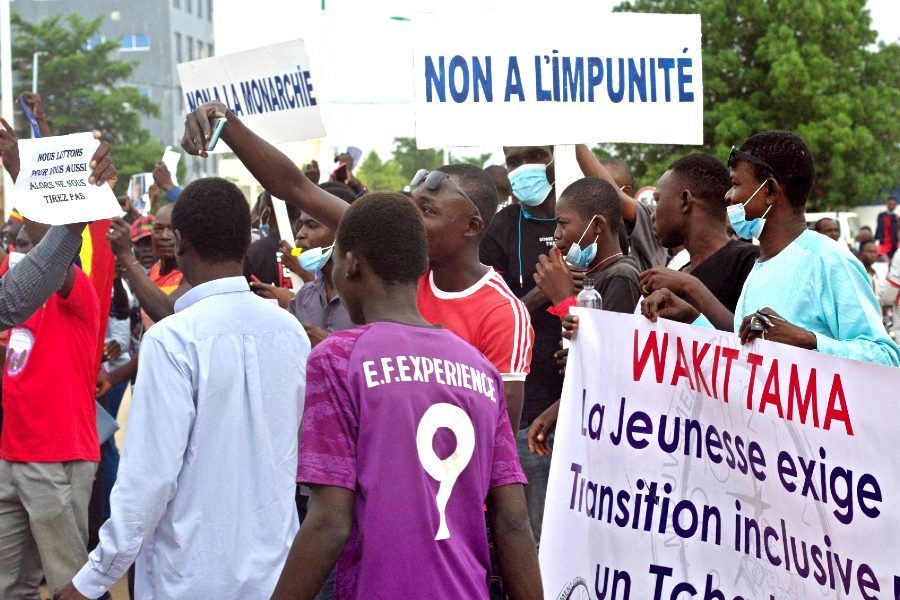
Spotlight
“Transition” Orchestrated by Chad’s Military Goes Awry
The violent crackdown on the peaceful opposition in Chad exposes the coercive intimidation behind the military junta’s unwillingness to facilitate a genuine democratic transition.
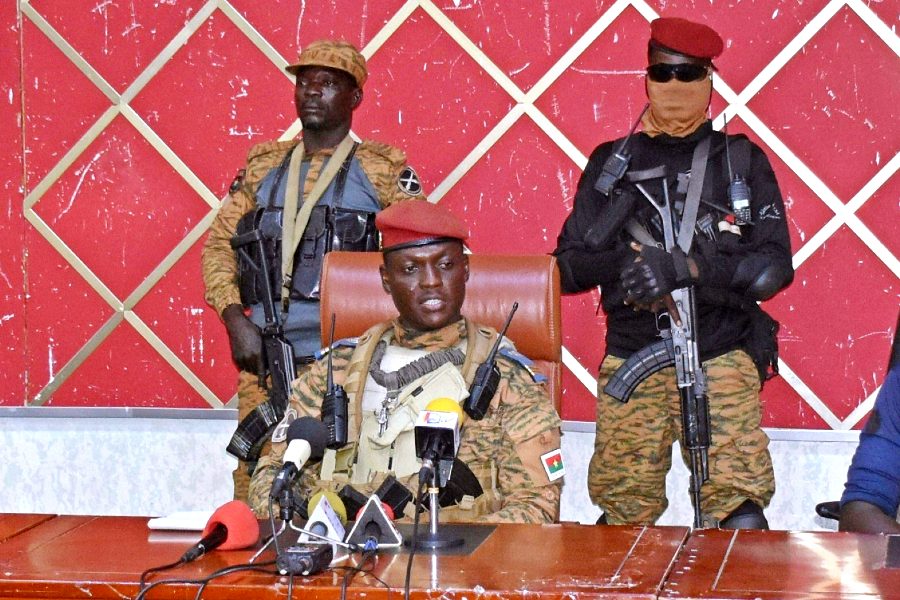
Spotlight
Understanding Burkina Faso’s Latest Coup
Two coups d’état in 9 months mark the latest inflection point in Burkina Faso’s political instability, causing heightened uncertainty as the country faces an escalating militant Islamist threat.
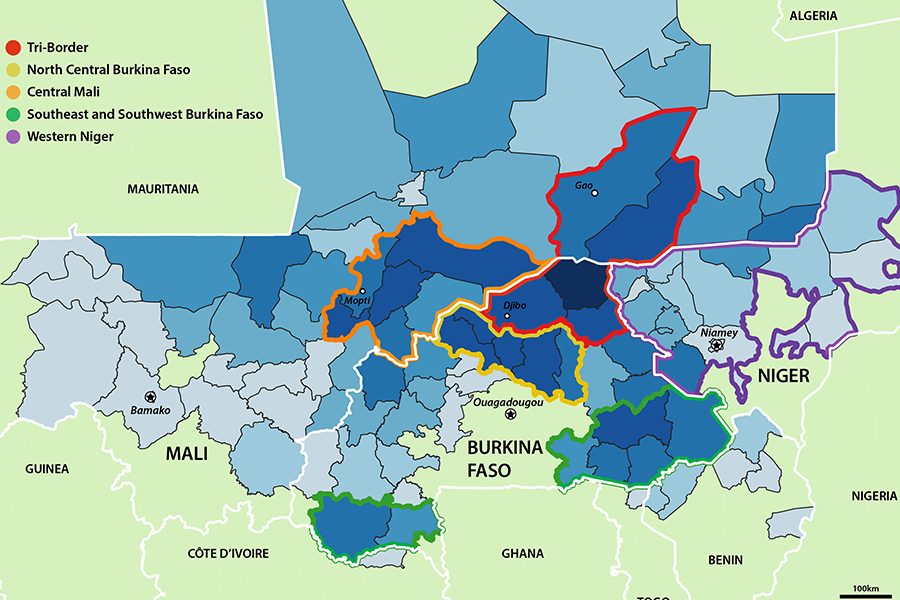
Infographic
Five Zones of Militant Islamist Violence in the Sahel
The deterioration of the security environment in the western Sahel is marked by an array of differing actors, drivers, and motivations, calling for contextualized responses.
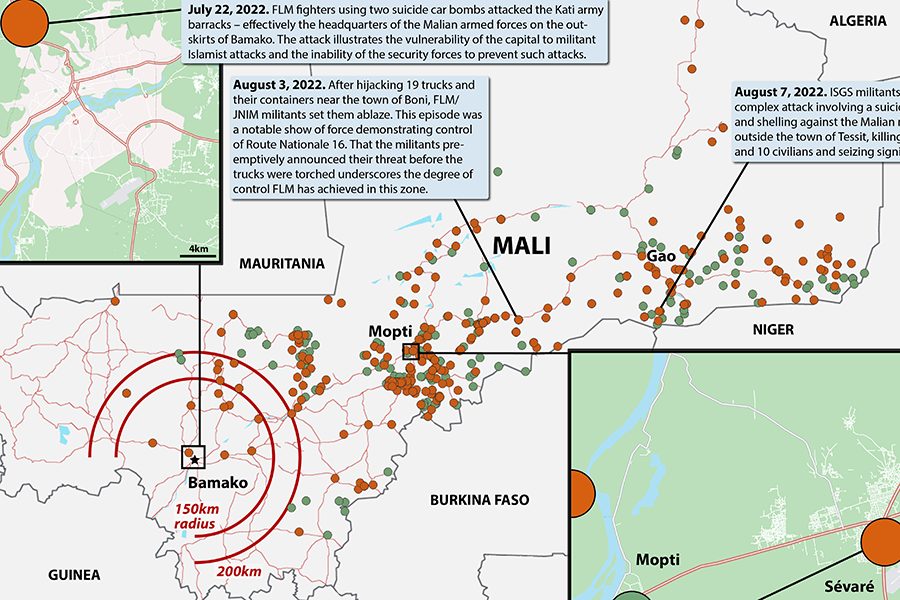
Infographic
Mali’s Militant Islamist Insurgency at Bamako’s Doorstep
Militant Islamist group violence is accelerating in Mali, advancing a complex insurgency in north, central, and increasingly southern Mali that further threatens the country’s stability.
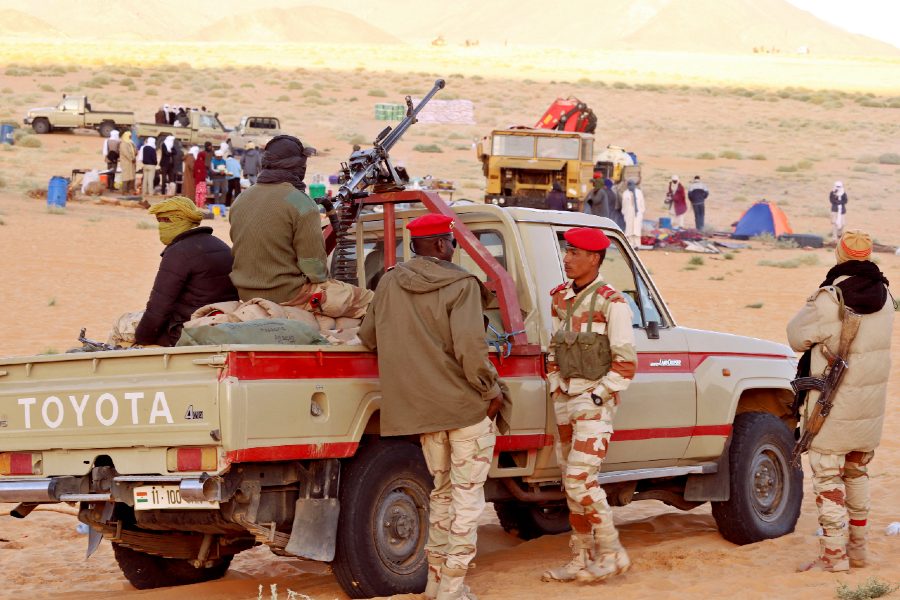
Publication
Strengthening Sahelian Counterinsurgency Strategy
Adapting Sahelian force structures to lighter, more mobile, and integrated units will better support the population-centric COIN practices needed to reverse the escalating trajectory of violent extremist attacks.
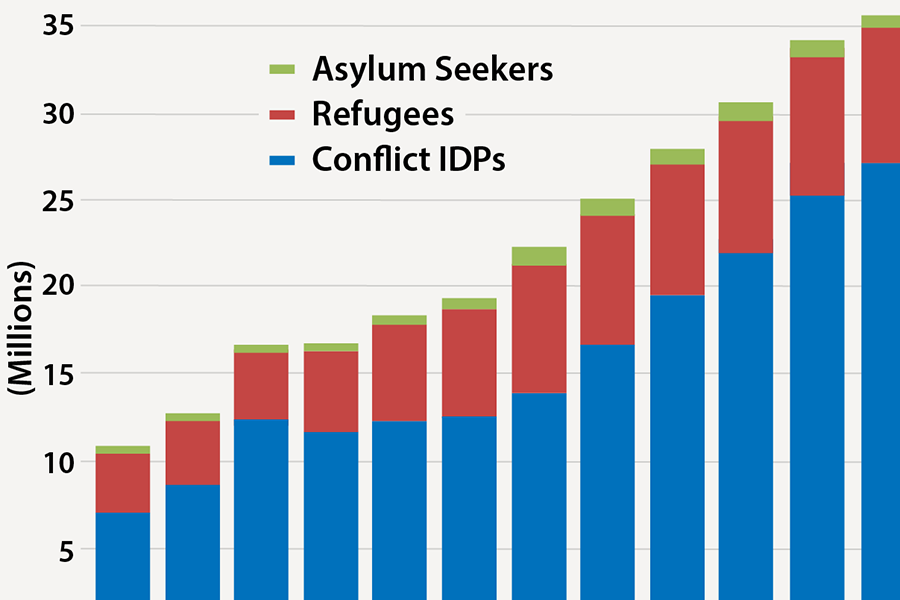
Infographic
Record 36 Million Africans Forcibly Displaced
Conflict continues to drive Africa’s record levels of population displacement. Africa’s 36 million forcibly displaced persons represent 44 percent of the global total.
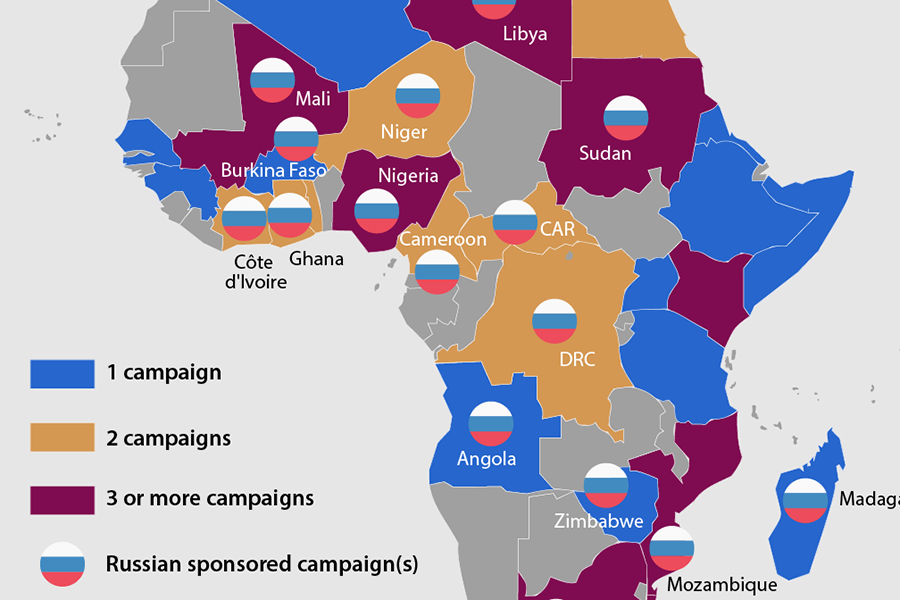
Infographic
Mapping Disinformation in Africa
Russia has pioneered a model of disinformation to gain political influence in Africa that is now being replicated by other actors across the continent.
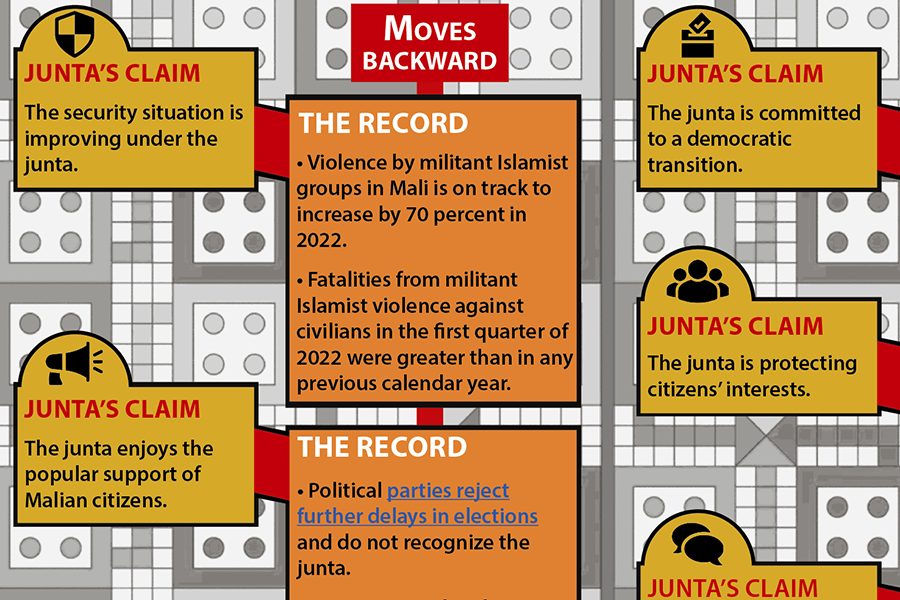
Infographic
Debunking the Malian Junta’s Claims
Mali’s military coup has thrust the country into a deeper security crisis as the junta quashes dissent and resists a democratic transition.
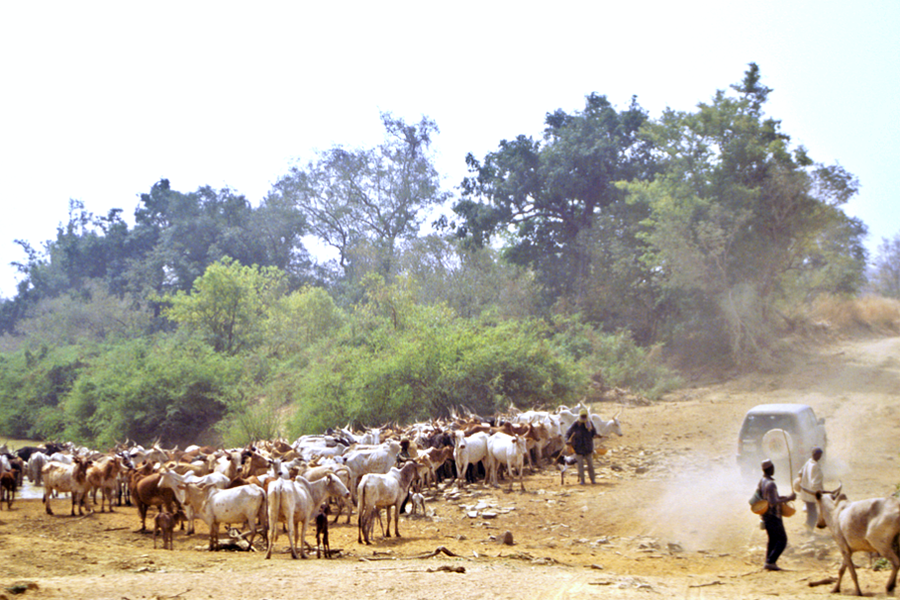
Spotlight
The Growing Threat of Violent Extremism in Coastal West Africa
Sahelian militant Islamist groups are threatening border areas of littoral states where grievances held by pastoralist communities may provide an entry point for extremist interests.
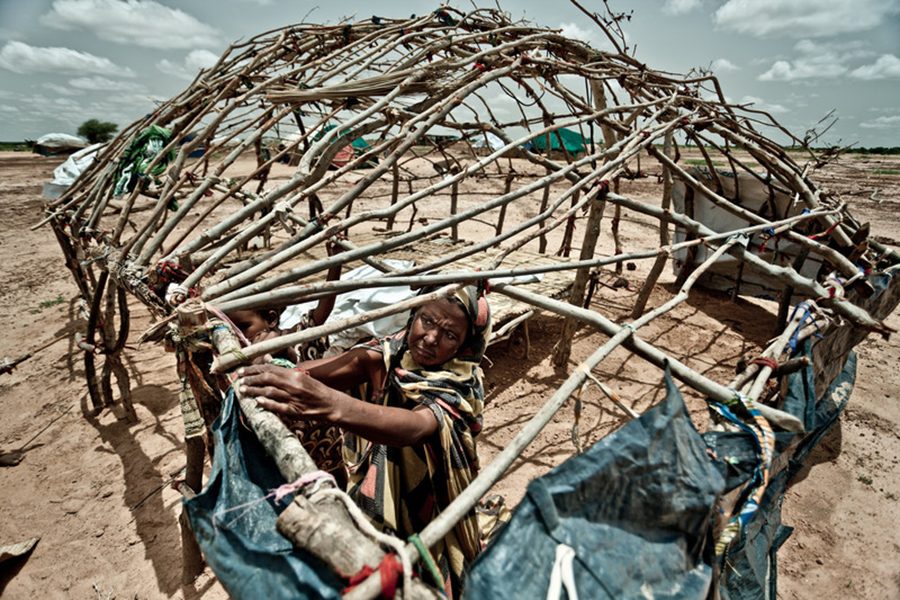
Spotlight
Trajectories of Violence Against Civilians by Africa’s Militant Islamist Groups
Extremist group violence against civilians is driven by context-specific factors—outgroup grievances, intimidation to control territory, and a response to heavy-handed security responses—that require enhanced community-level mitigation and military professionalism.
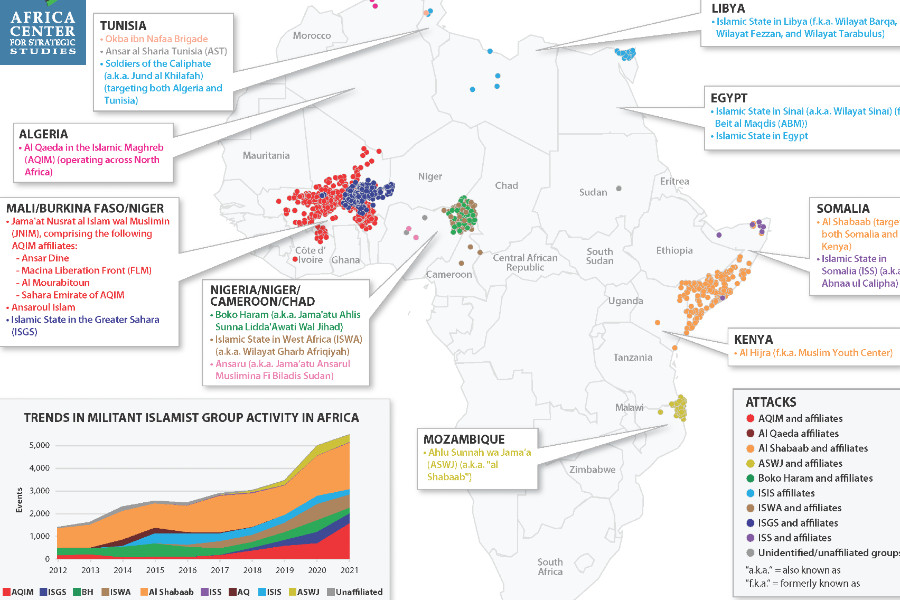
Infographic
Surge in Militant Islamist Violence in the Sahel Dominates Africa’s Fight against Extremists
A 70-percent annual increase in violent events linked to militant Islamist groups in the Sahel propelled a new record of extremist violence in Africa in 2021.
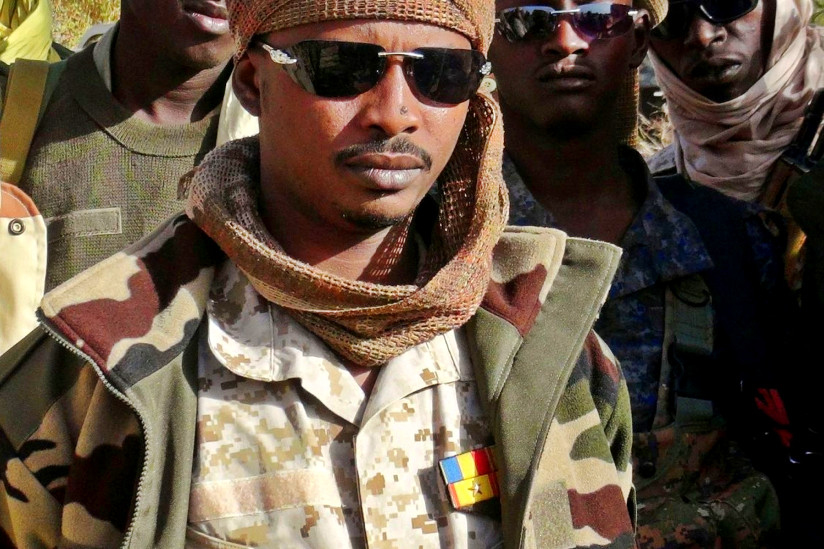
Spotlight
A Crucial Moment in Chad’s Transition
Chad's national dialogue will not achieve stability or peace as long as those who support civilian rule and civilian transition continue to be excluded from the transition.
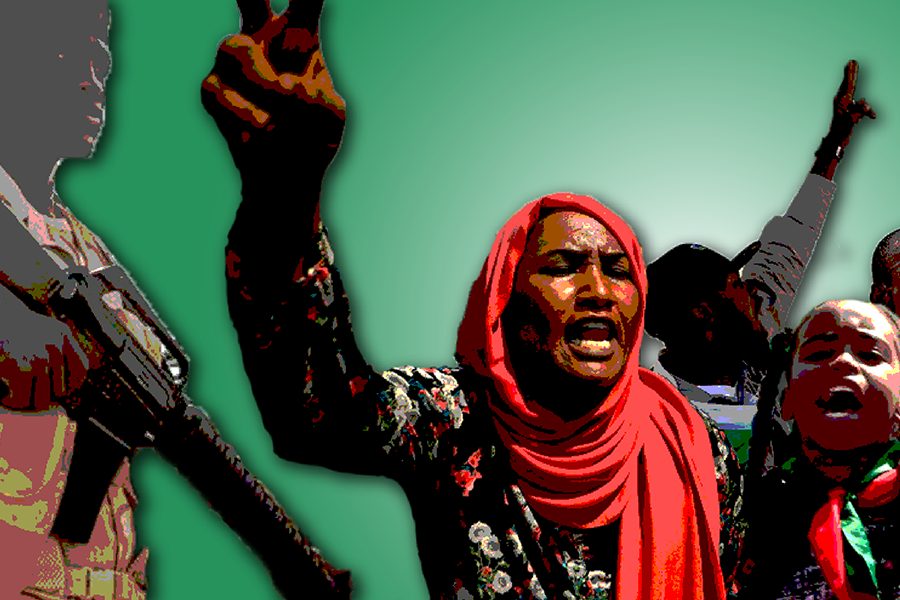
Spotlight
What the Post-Coup Agreement Means for Sudan’s Democratic Transition
Sudan’s democratic transition is under duress as the military seeks validation for its hold on power via the reinstatement of a figurehead civilian prime minister.
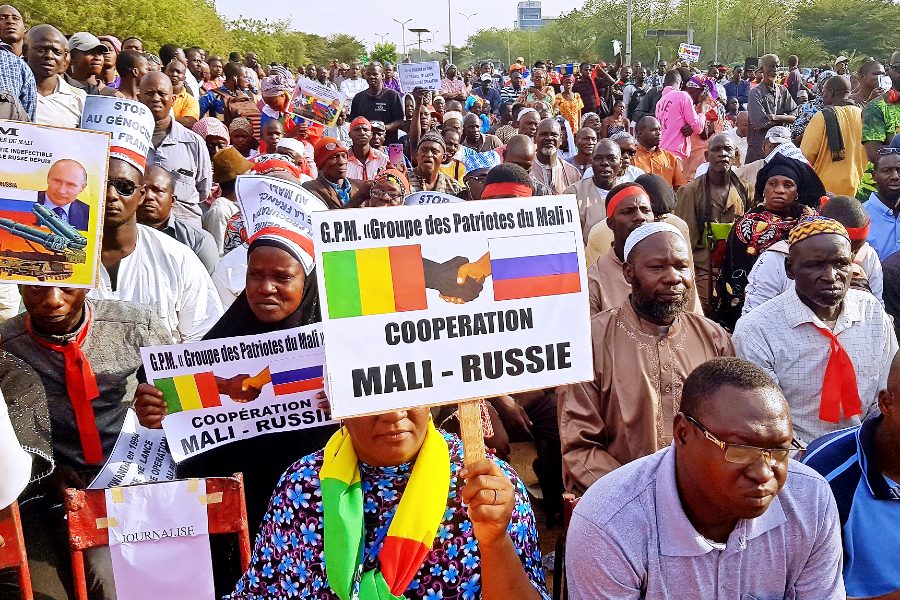
Spotlight
Russia’s Wagner Play Undermines the Transition in Mali
The prospective deployment of Russia’s Wagner mercenaries should not be confused with addressing Mali’s security situation but is a means of expanding Russian influence while propping up the military junta.
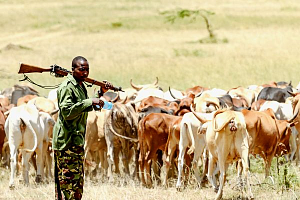
Publication
The Growing Complexity of Farmer-Herder Conflict in West and Central Africa
The rise of farmer-herder violence in Africa is more pernicious than fatality figures alone since it is often amplified by the emotionally potent issues of ethnicity, religion, culture, and land.
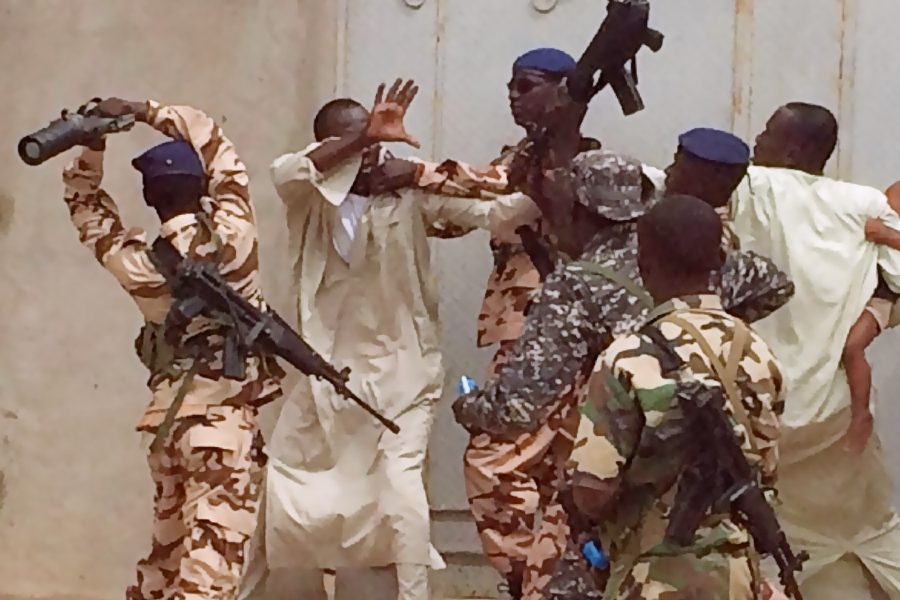
Spotlight
Chad’s Ongoing Instability, the Legacy of Idriss Déby
Idriss Déby’s death is an outcome of the ongoing instability perpetuated by his regime. The subsequent military coup d’état led by the late president’s son risks deepening political violence in this geographically strategic country.
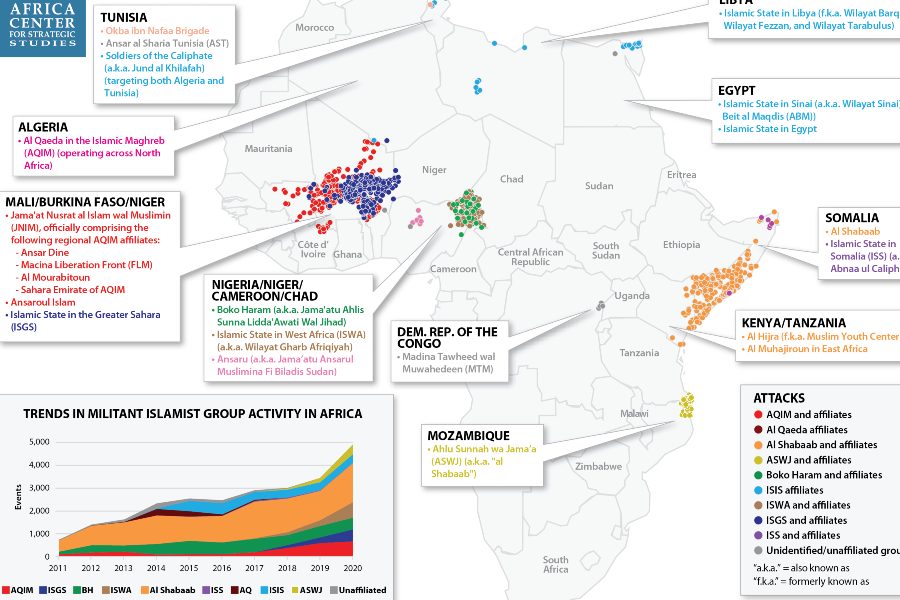
Infographic
Spike in Militant Islamist Violence in Africa Underscores Shifting Security Landscape
A surge of violent events by militant Islamist groups in Africa, led by escalations in the Sahel and the Lake Chad Basin, sets record and widens instability.
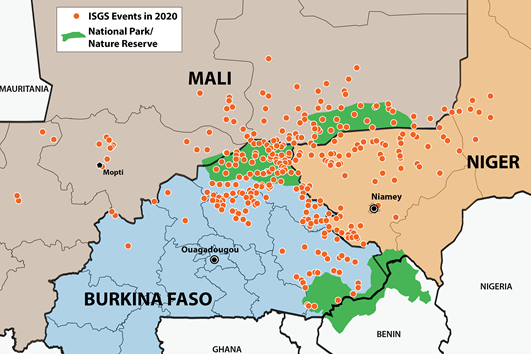
Infographic
Islamic State in the Greater Sahara Expanding Its Threat and Reach in the Sahel
Violence linked to the Islamic State in the Greater Sahara (ISGS) more than doubled in the past year. Concentrated along the Burkina Faso-Niger-Mali border areas, ISGS events target civilians nearly half the time.
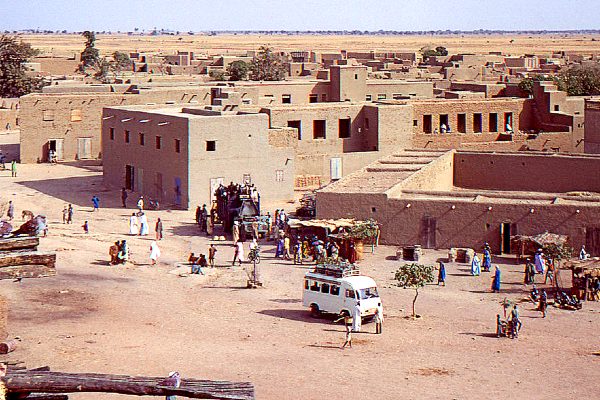
Publication
The Puzzle of JNIM and Militant Islamist Groups
in the Sahel
Composed of distinct operational entities, the militant Islamist group coalition Jama’at Nusrat al Islam wal Muslimeen serves the role of obscuring the operations of its component parts in the Sahel, thereby inhibiting a more robust response.
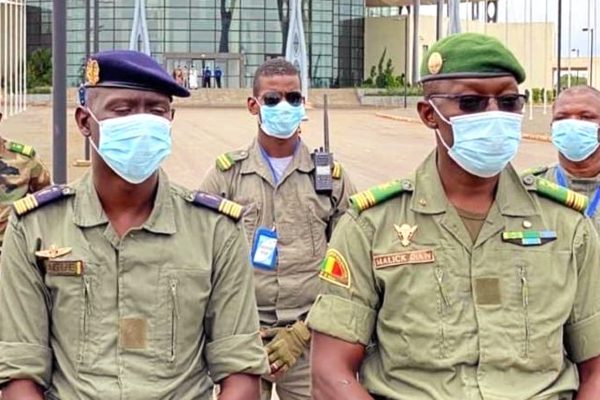
Spotlight
The Legacy of Military Governance in Mali
After leading a coup against a democratically elected government, junta leader Colonel Assimi Goïta has attempted to rehabilitate the image of military government in Mali.
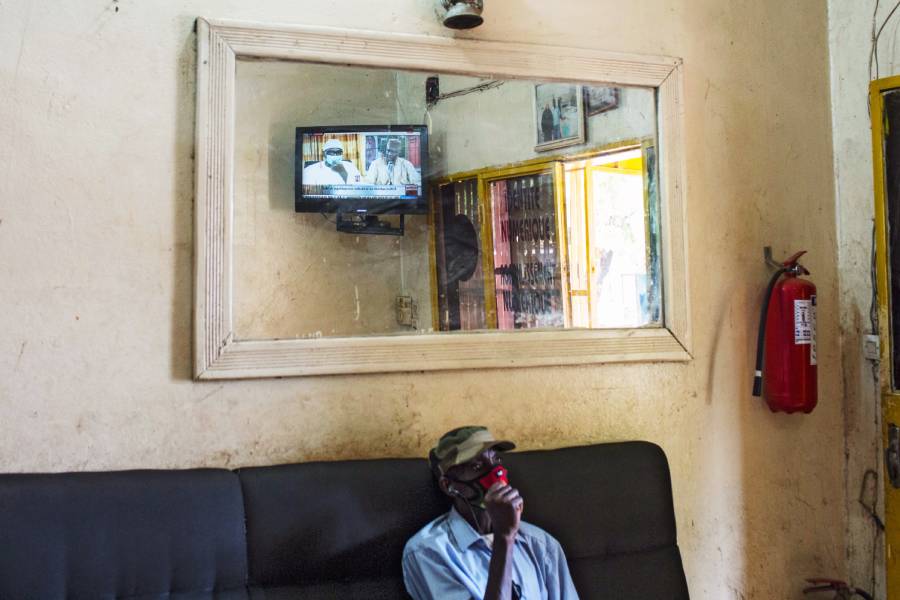
Spotlight
Mali: Beware the ‘Popular’ Coup
Rationalizing a coup because people are in the streets overlooks the reality that nearly every coup is greeted enthusiastically by some. ‘Popular support’ for the coup in Mali has masked a politicized military, opportunistic opposition figures, and Russian meddling.

Spotlight
Keeping Terrorism at Bay in Mauritania
Mauritania’s security reforms, including training, enhanced mobility, Special Forces, prudent procurement, and community engagement have strengthened its capability to confront violent extremist groups.
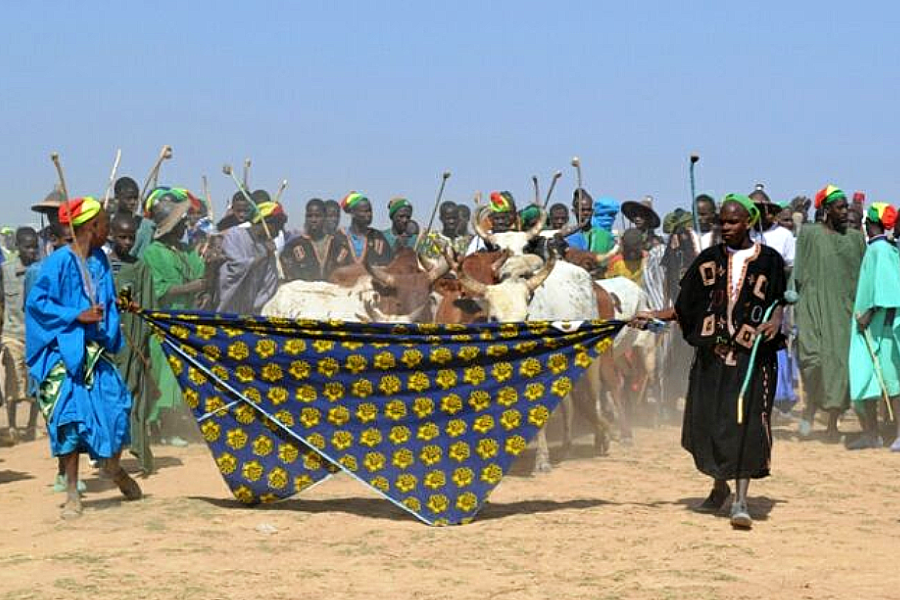
Spotlight
Understanding Fulani Perspectives on the Sahel Crisis
The disproportionate representation of Fulani in militant Islamist groups in the Sahel has led to the stigmatization of the entire Fulani community. Reversing this will require renewed outreach and trust-building between Fulani leaders, government authorities, and neighboring communities.
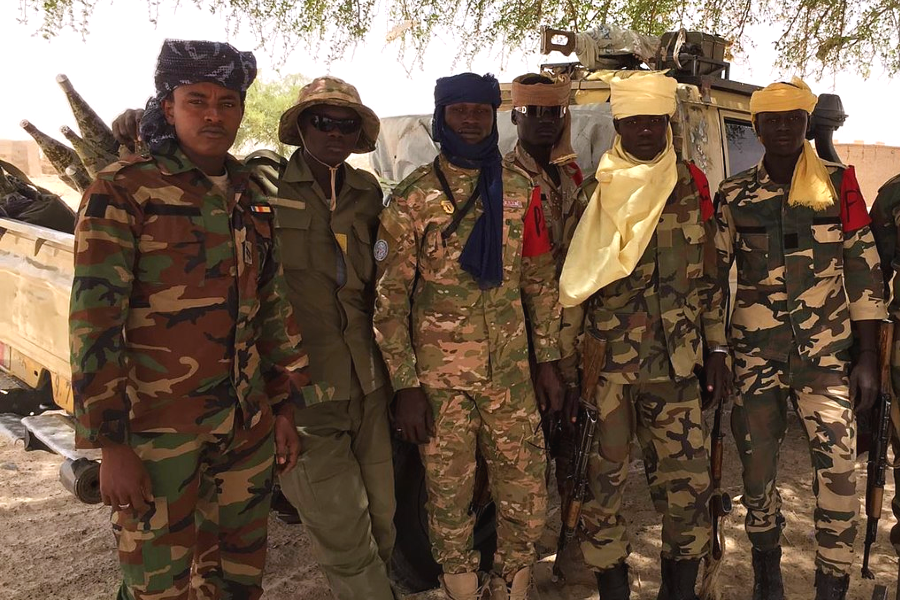
Spotlight
Chad’s Escalating Fight against Boko Haram
A rise in Boko Haram and ISWA attacks in Chad has been met with a military surge to clear the area. Enduring success will require a sustained presence and an intensified regional commitment.
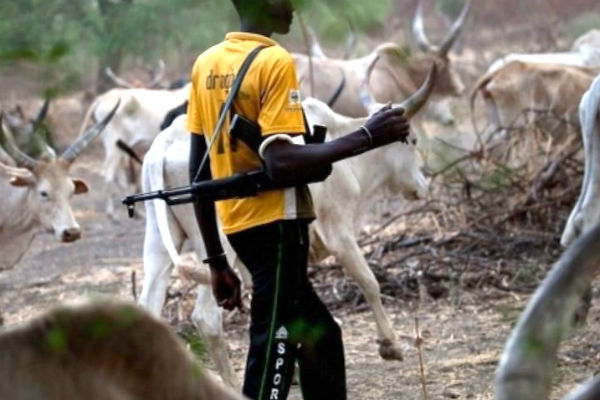
Spotlight
How Violent Extremist Groups Exploit Intercommunal Conflicts in the Sahel
Rising violence by militant Islamist groups in the Sahel is straining intercommunal tensions, threatening the foundations of social cohesion in the region.
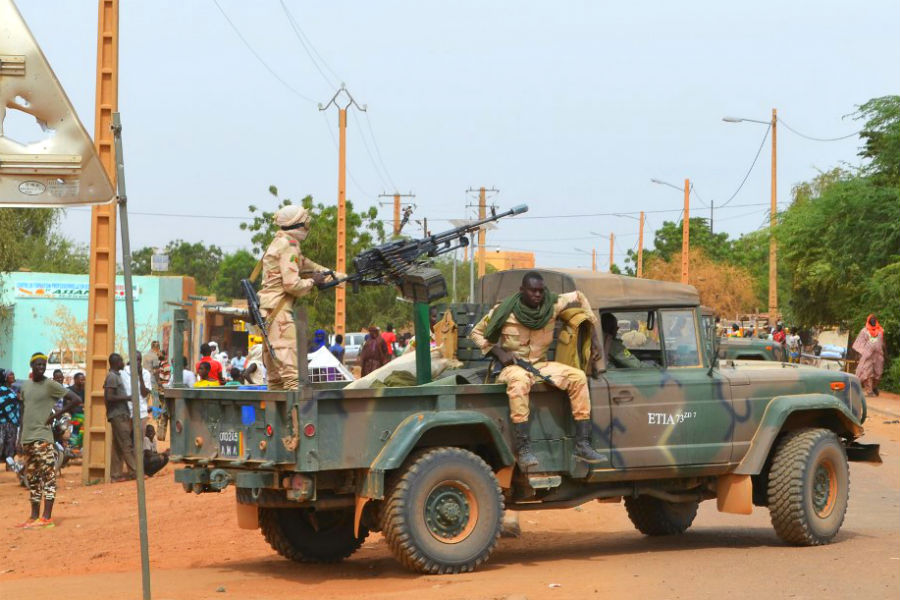
Publication
Responding to the Rise in Violent Extremism in the Sahel
Reversing the escalating violence of militant Islamist groups in the Sahel will require an enhanced security presence coupled with more sustained outreach to local communities.
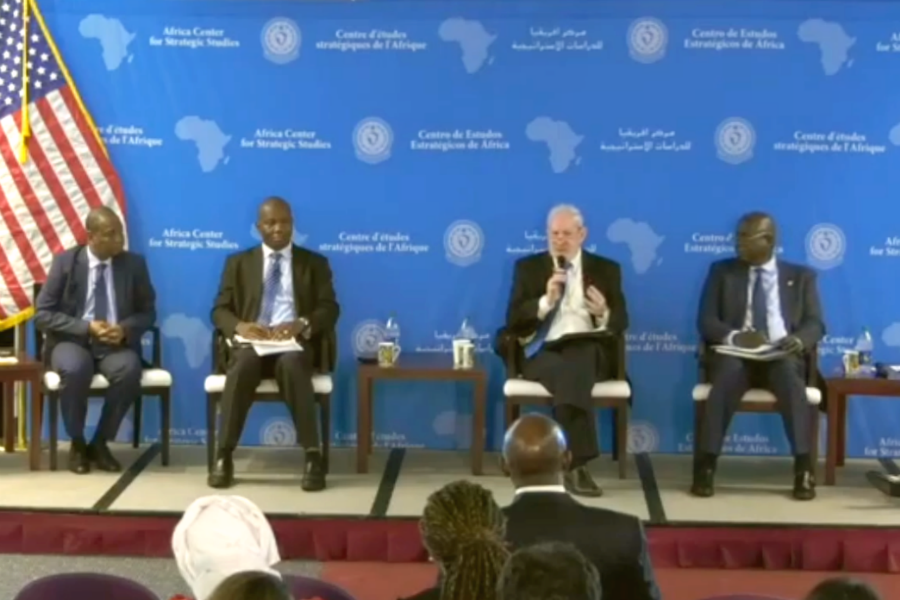
Video
Strategies for Peace and Security in the Sahel
The Sahel is the African region that has seen the most rapid growth in violent extremist activity over the past 2 years. Ambassadors of the G-5 Sahel countries and leading experts examine the drivers and responses to the region's security challenges.
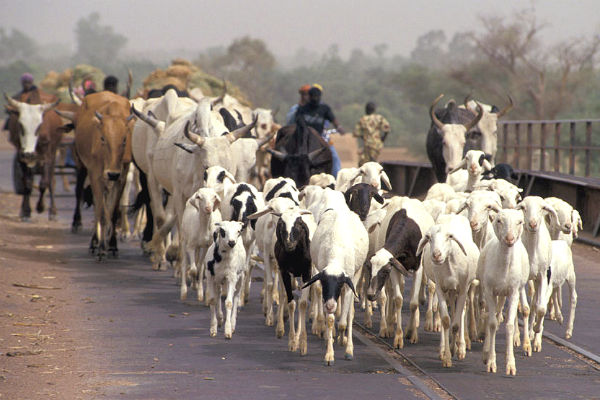
Spotlight
Mitigating Farmer-Herder Violence in Mali
The confluence between farmer-herder violence, ethnicity, and extremist groups requires a multitiered response emphasizing a people-centric approach.
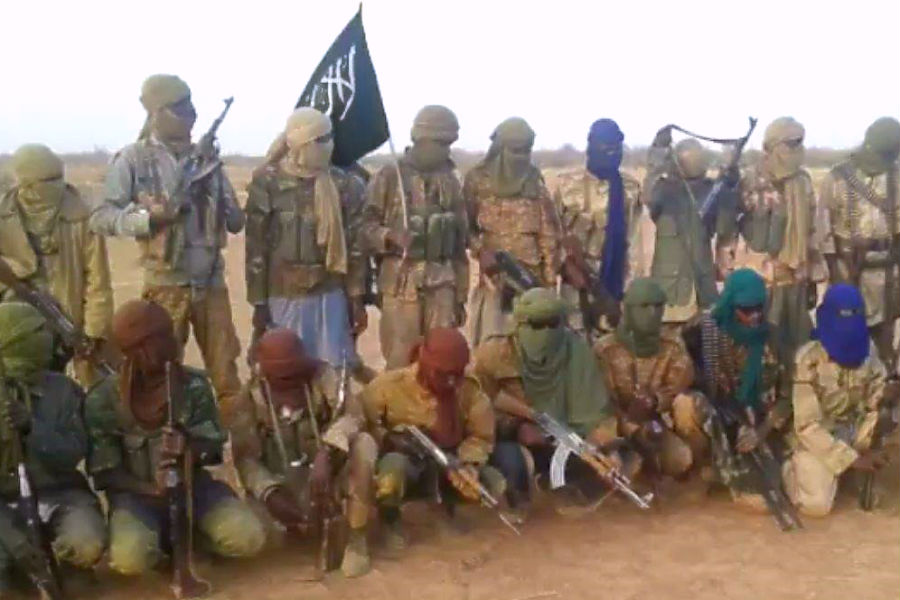
Spotlight
Ansaroul Islam: The Rise and Decline of a Militant Islamist Group in the Sahel
Burkina Faso’s first militant Islamist group, Ansaroul Islam, has faced setbacks, pointing to the weaknesses of violent extremist organizations lacking deep local support and facing sustained pressure.
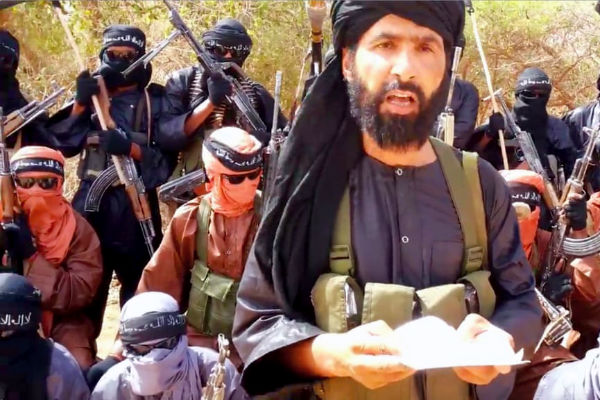
Spotlight
Exploiting Borders in the Sahel: The Islamic State in the Greater Sahara
The Islamic State in the Greater Sahara has pursued breadth rather than depth of engagement in its rapid rise along the Mali, Niger, and Burkina Faso borders.
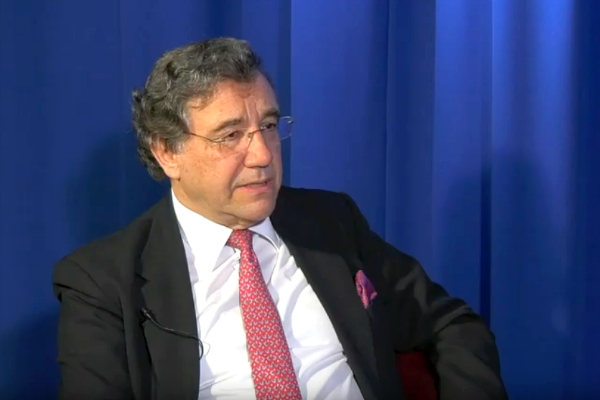
Video
EU Security Strategy in Sahel Focused on Security-Development Nexus
EU Special Representative to the Sahel Angel Losada Fernandez discusses Europe's security strategy in the region, which focuses on integrating development, security, and governance in coordination with African actors on the ground, in this interview with the Africa Center.
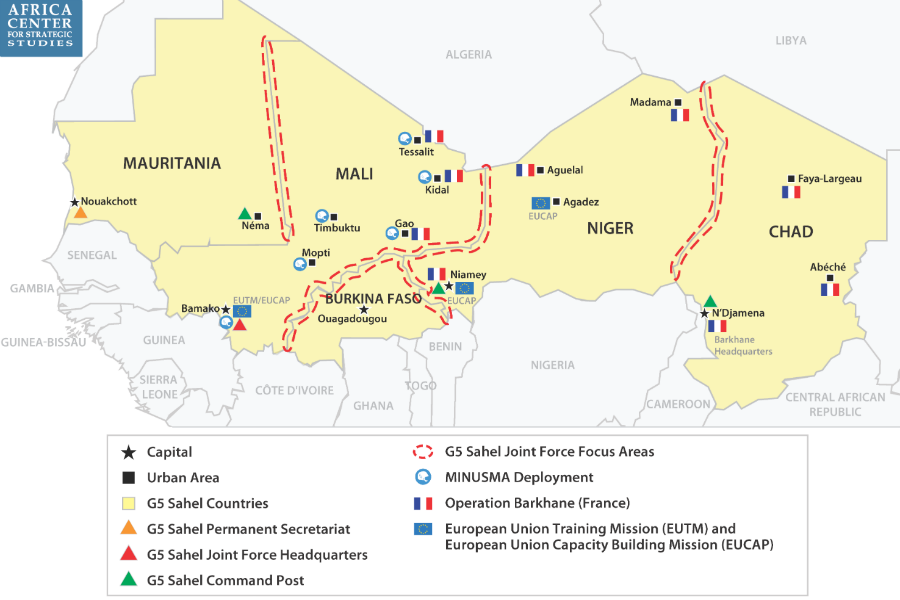
Infographic
A Review of Major Regional Security Efforts in the Sahel
Increased attacks from militant Islamist groups in the Sahel coupled with cross-border challenges such as trafficking, migration, and displacement have prompted a series of regional and international security responses.
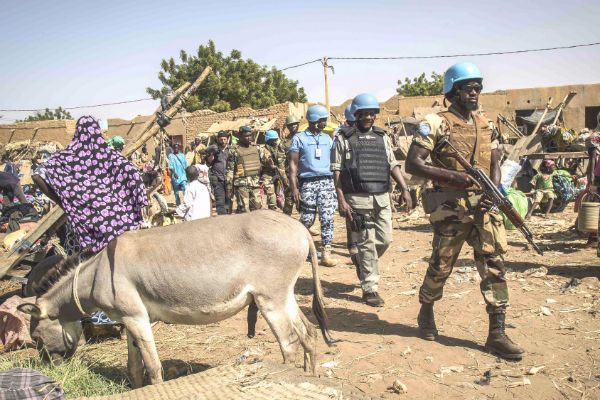
Spotlight
Confronting Central Mali’s Extremist Threat
The Macina Liberation Front has opportunistically played on perceptions of ethnic, economic, religious, and political marginalization to become one of the most active militant Islamist groups in Mali.
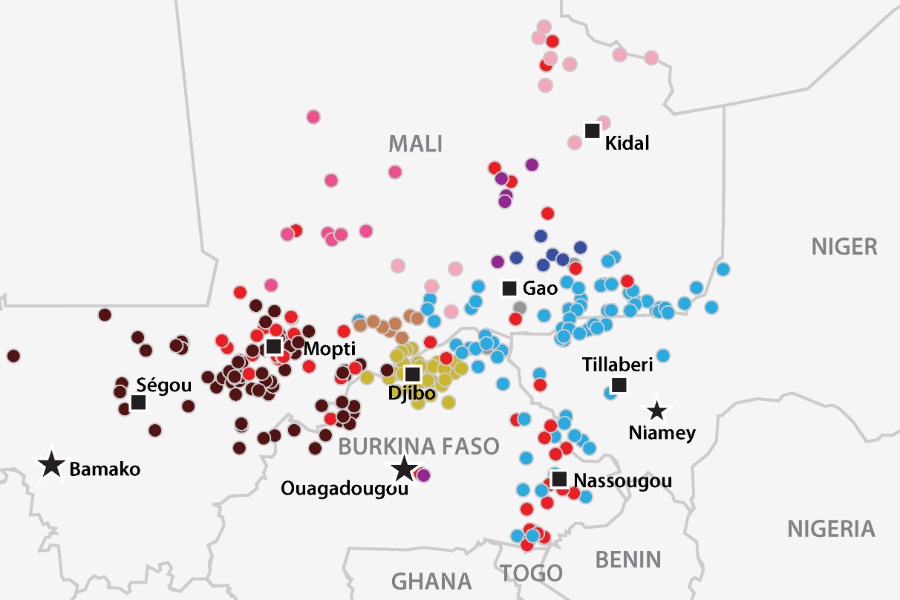
Infographic
The Complex and Growing Threat of Militant Islamist Groups in the Sahel
The escalation of violent events linked to militant Islamist groups in the Sahel reflects an array of diverse actors operating within distinct geographic concentrations.
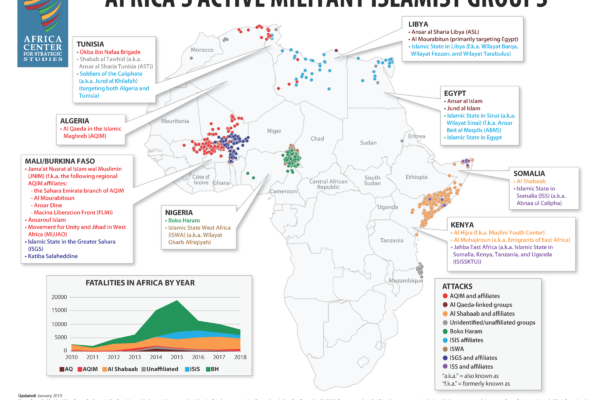
Infographic
Progress and Setbacks in the Fight against African Militant Islamist Groups in 2018
Declines in violent activity linked to Boko Haram and al Shabaab are balanced by increases in the Sahel, generating a mixed picture of the challenge posed by militant Islamist groups in Africa.
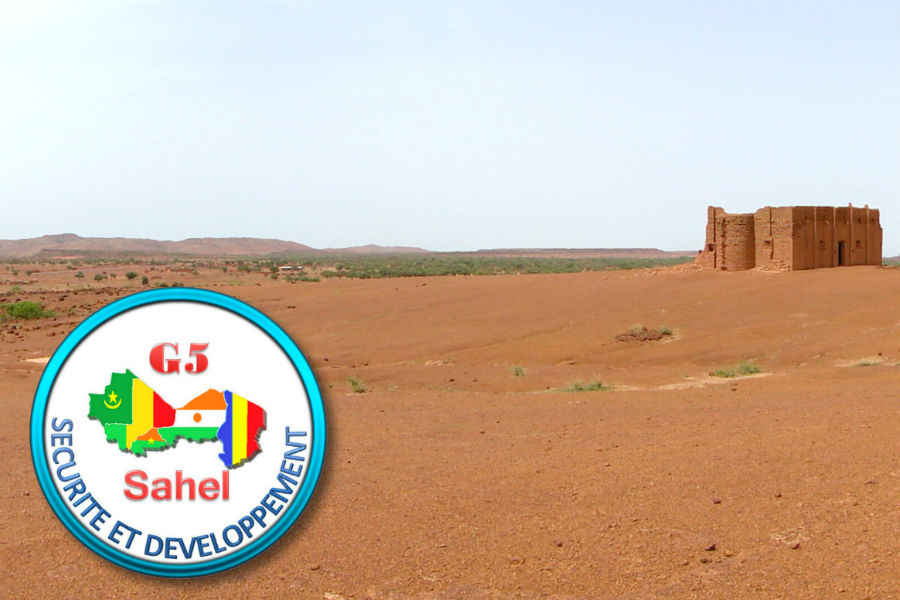
Spotlight
The G5 Sahel Joint Force Gains Traction
The G5 Sahel is ramping up its joint security force in order to address the growing threat posed by militant Islamist groups in the Sahel. The Force is emerging as a focal point for transnational security efforts in the region.
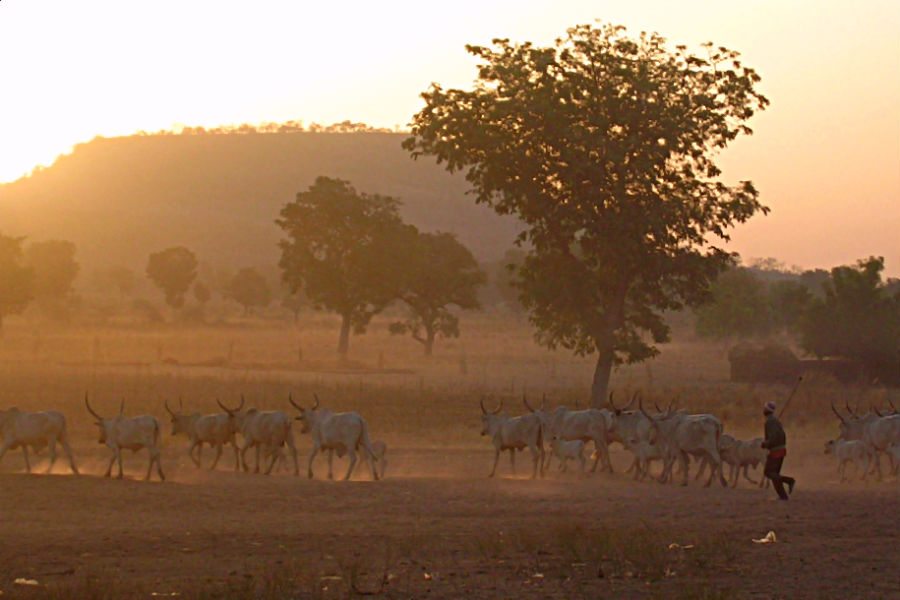
Spotlight
Africa’s Pastoralists: A New Battleground for Terrorism
Islamist terrorist groups in the Sahel and Sahara are attempting to exploit pastoralist grievances to mobilize greater support for their agenda, write Kaley Fulton and Benjamin Nickels.
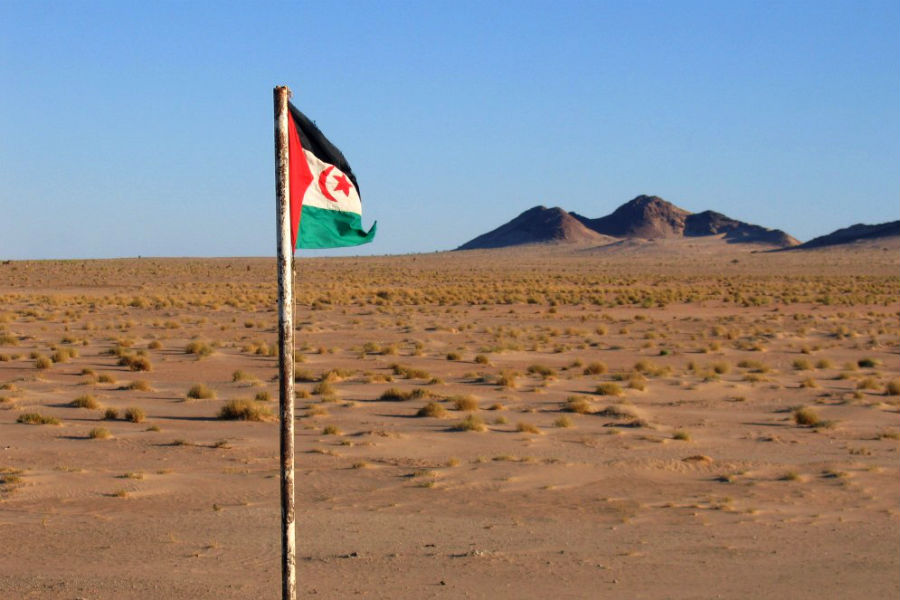
Spotlight
Sahrawi Insurgency Could Provide an Opening for AQIM
The unfolding events between Morocco and Western Sahara could provide a sought-after opportunity for AQIM to reassert its relevance in the region.
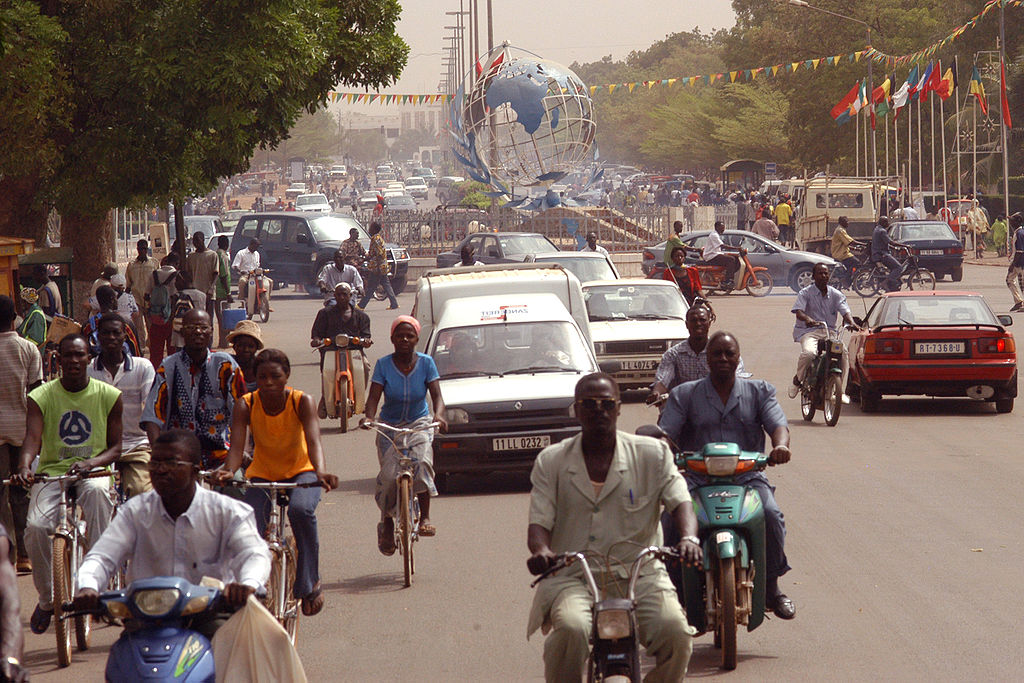
Spotlight
Terrorists Strike Burkina Faso: What are the Implications?
The terrorist attack on a luxury hotel in Ouagadougou is the second time in recent months that groups affiliated with Al-Qaeda in the Islamic Maghreb (AQIM) have conducted attacks of this type outside their base area. Benjamin Nickels assesses the significance of these attacks and steps that might be taken by Burkinabé authorities and their partners to address future threats.
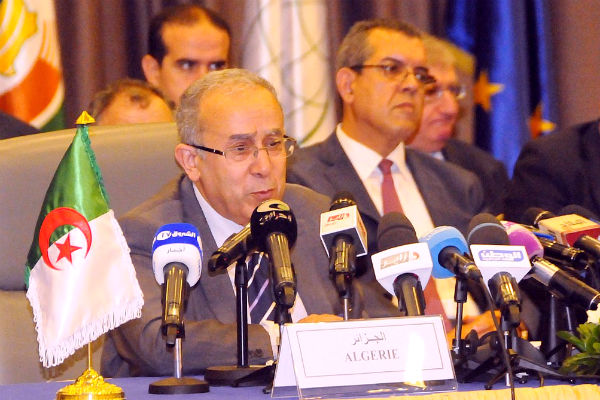
Publication
Regional Security Cooperation in the Maghreb and Sahel: Algeria’s Pivotal Ambivalence
Despite growing security concerns across the Sahel and Maghreb, regional security cooperation to address these transnational threats remains fragmented. Algeria is well-positioned to play a central role in defining this cooperation, but must first reconcile the complex domestic, regional, and international considerations that shape its decision-making.
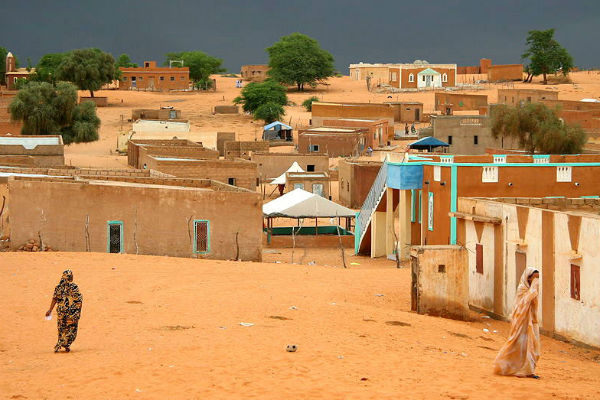
Publication
Sifting Through the Layers of Insecurity in the Sahel: The Case of Mauritania
Increasing narcotrafficking and a more active Al Qaeda in the Islamic Maghreb are elevating concerns over instability in the Sahel. However, the region’s threats are more complex than what is observable on the surface. Rather, security concerns are typically characterized by multiple, competing, and fluctuating interests at the local, national, and regional levels. Effectively responding to these threats requires in-depth understanding of the multiple contextual layers in which illicit actors operate.
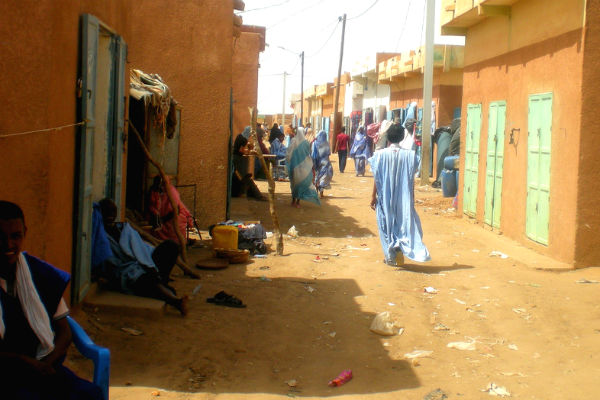
Publication
West Africa’s Growing Terrorist Threat: Confronting AQIM’s Sahelian Strategy
Counterterrorism efforts among Sahelian governments remain uncoordinated and too narrowly focused to contain and confront AQIM’s long-term and sophisticated strategy in the region. To prevent AQIM from further consolidating its presence in the Sahel, regional policies must be harmonized and security forces refocused so as to minimize collateral impacts on local communities.
